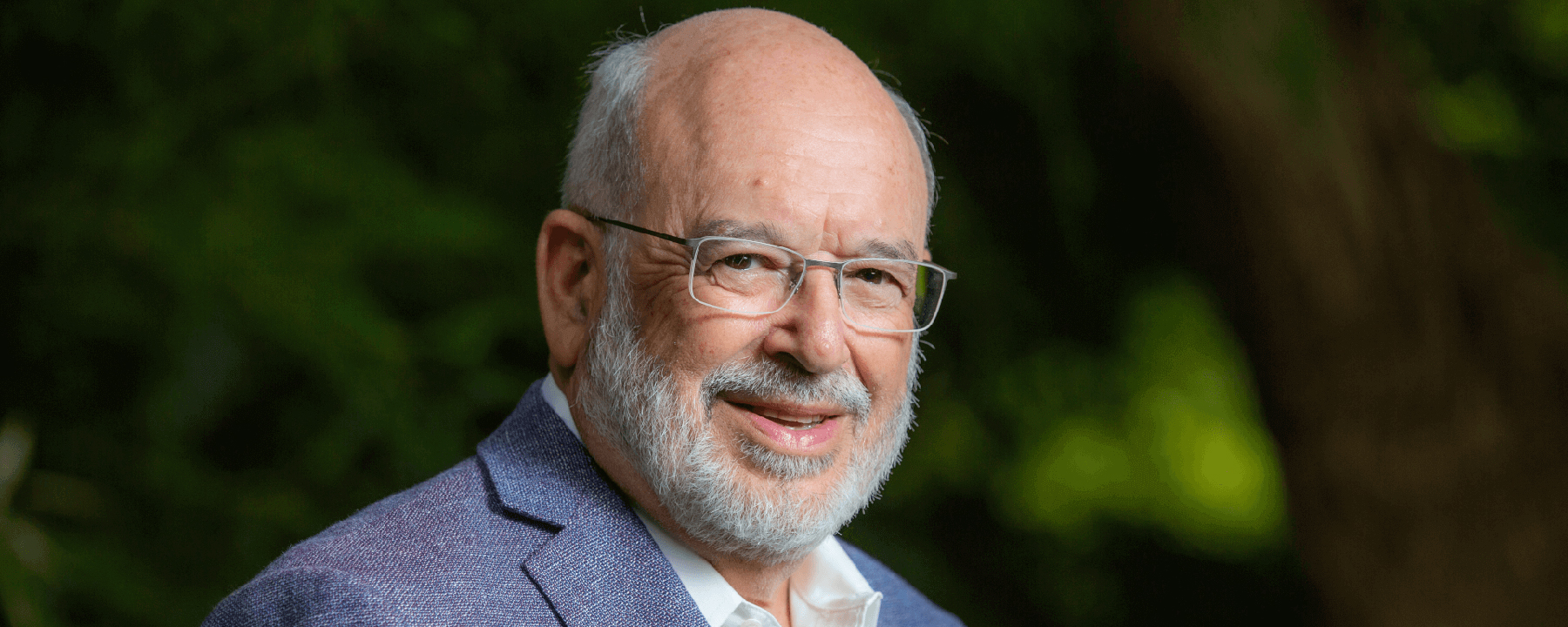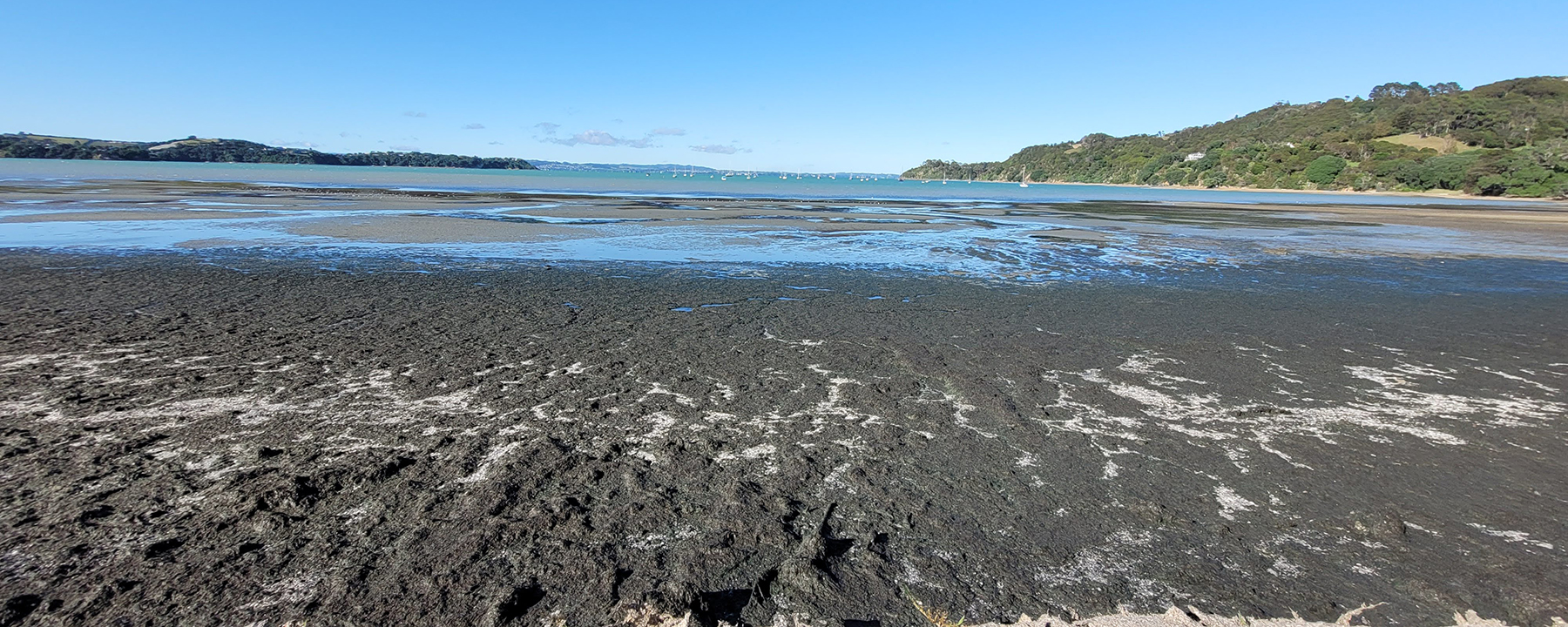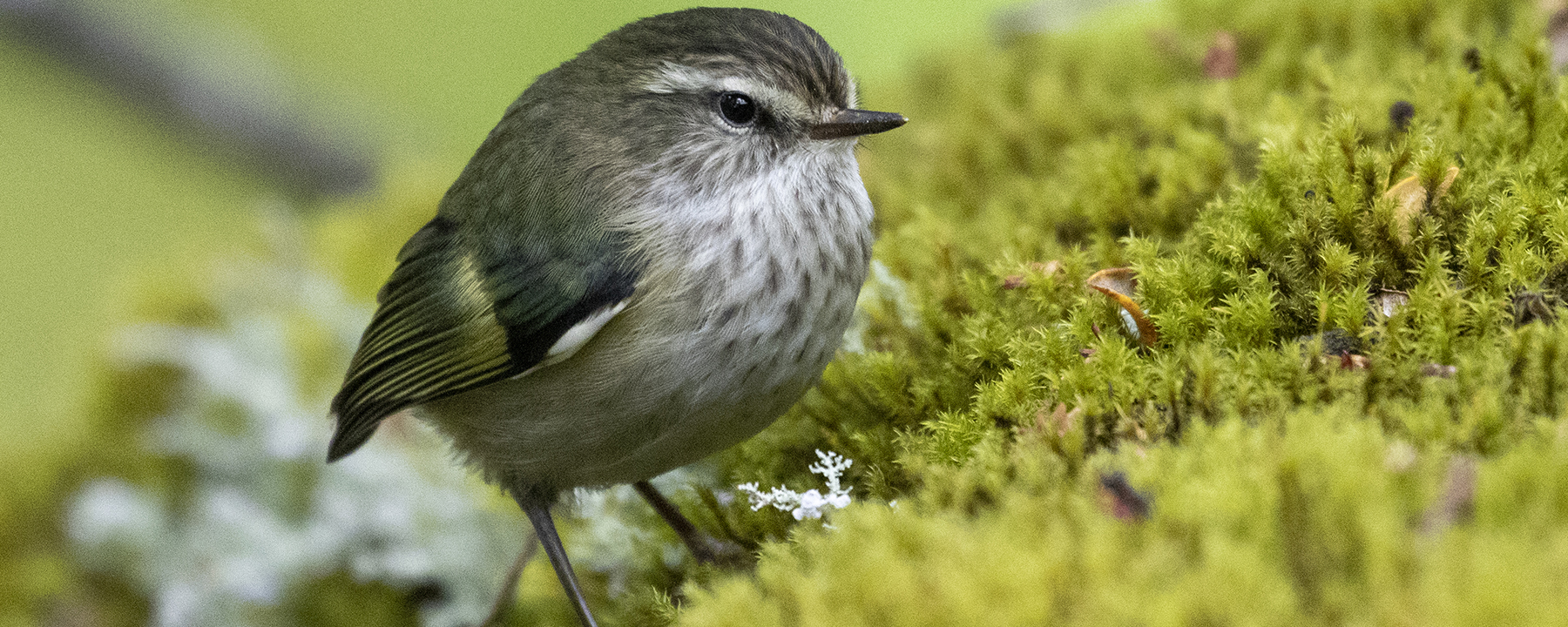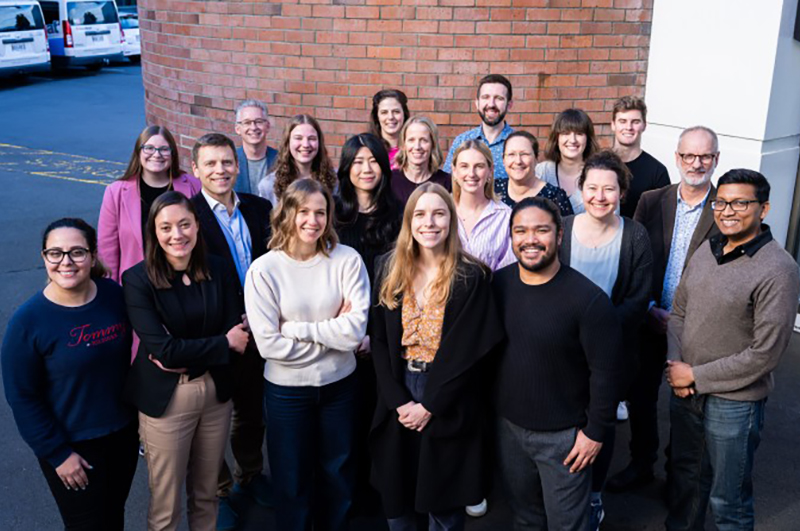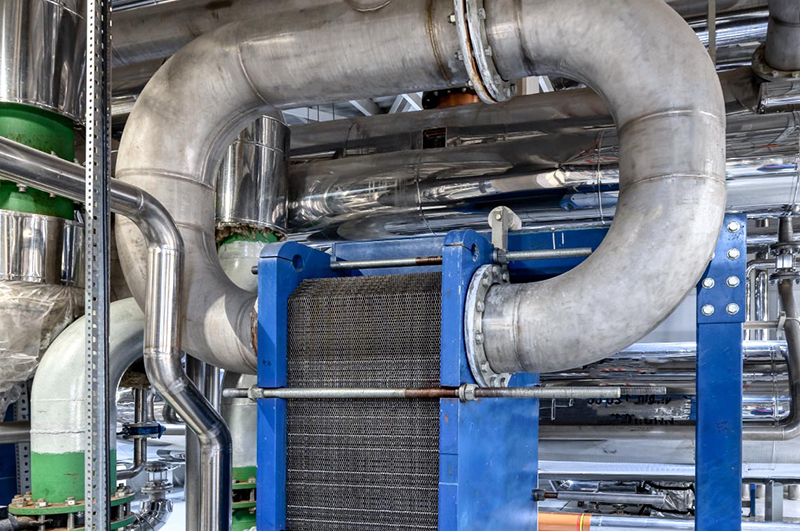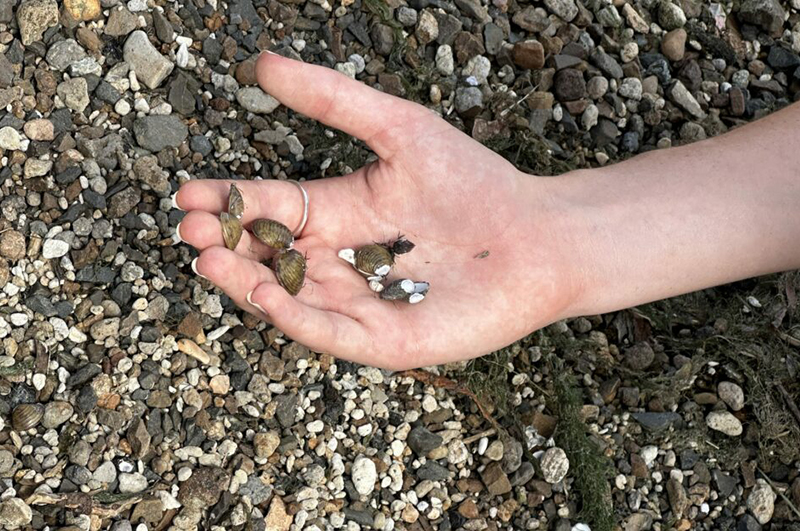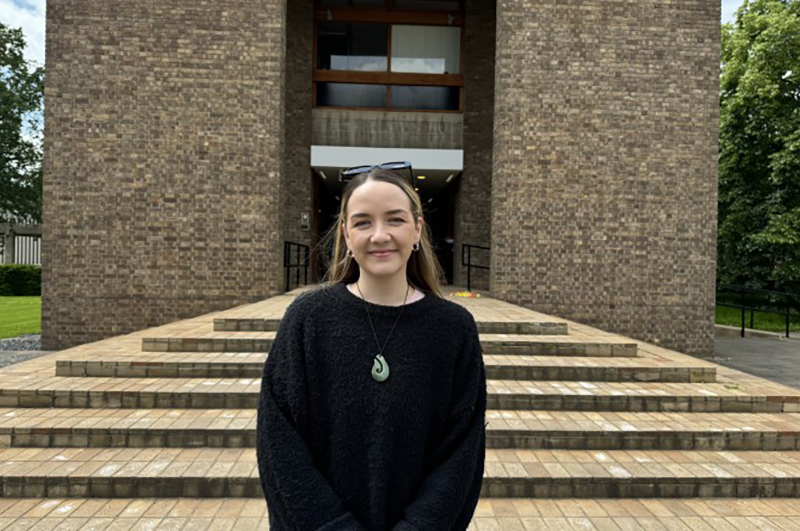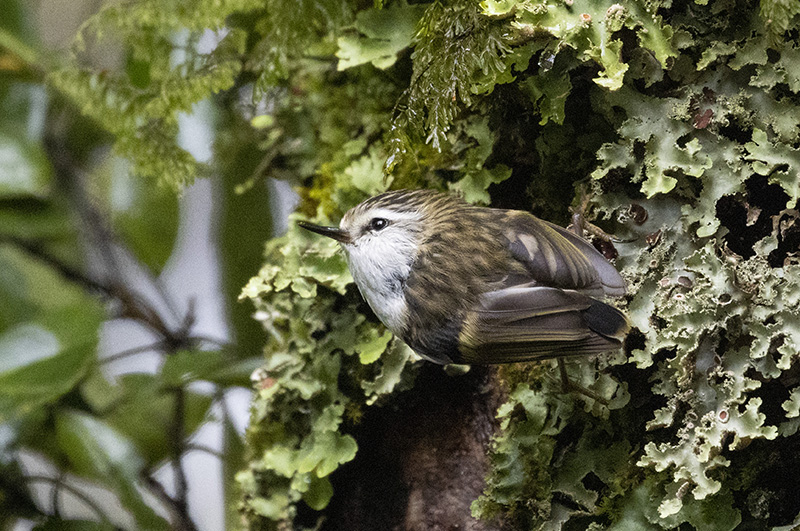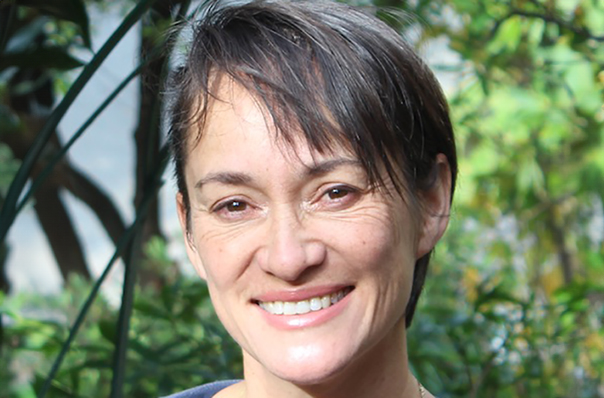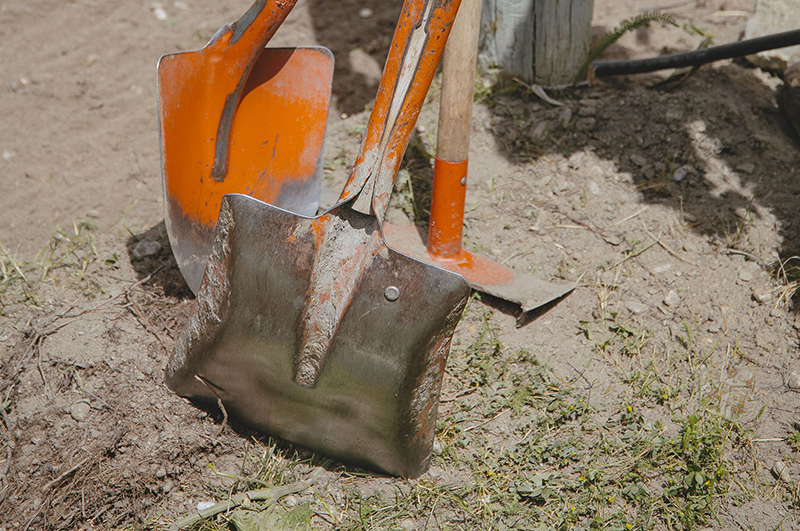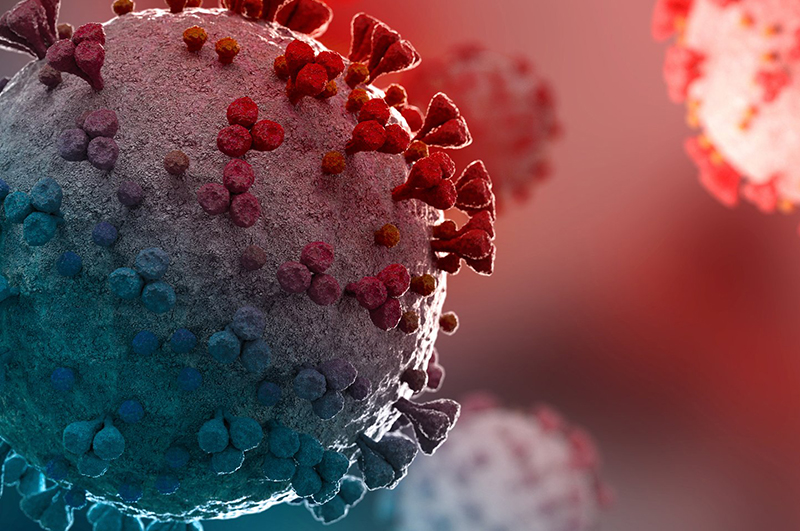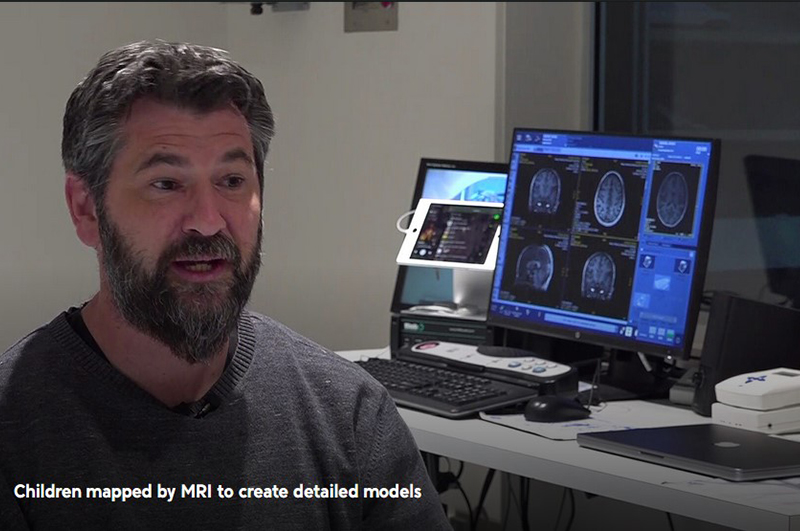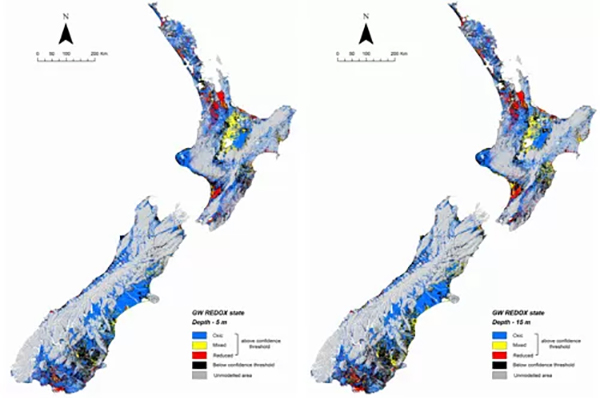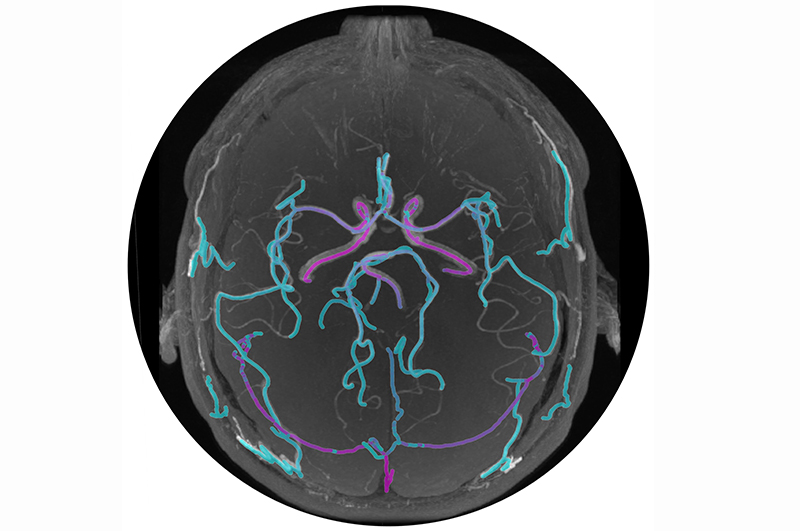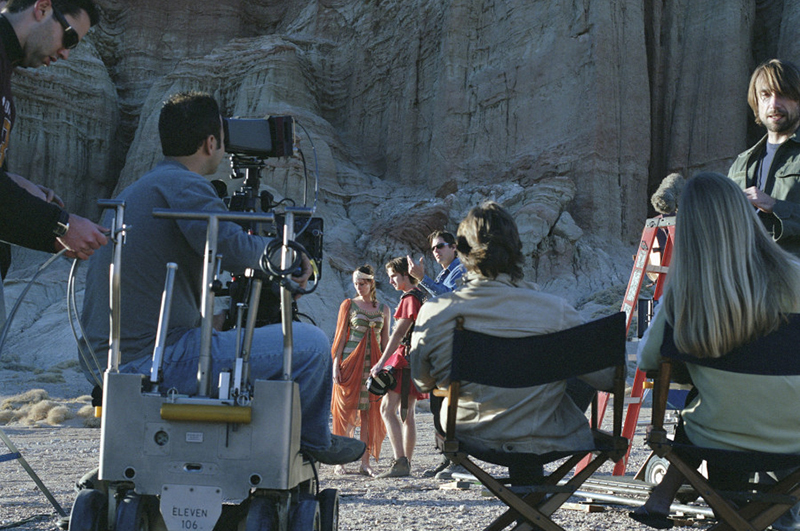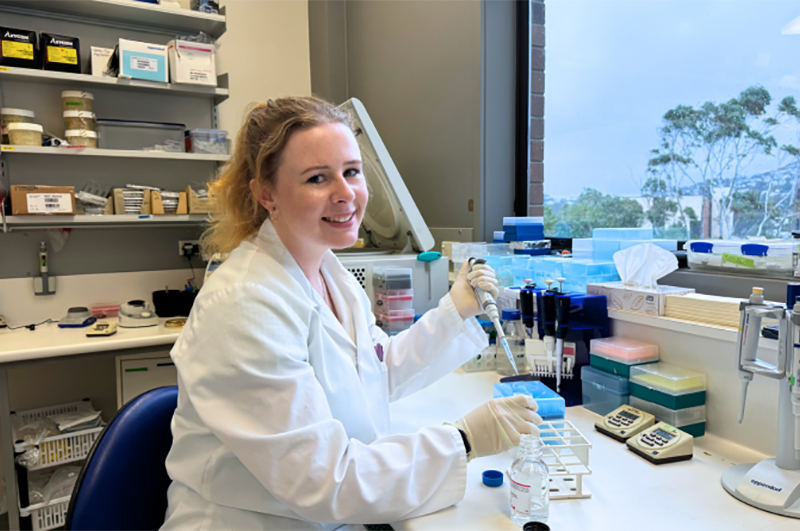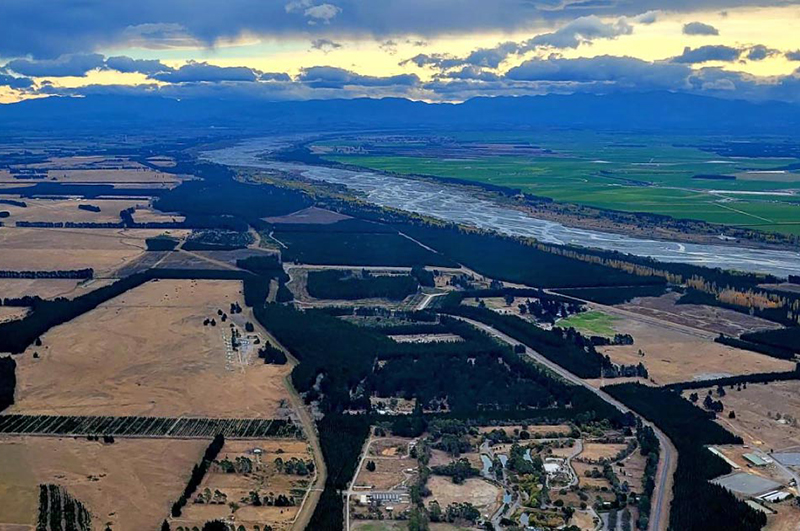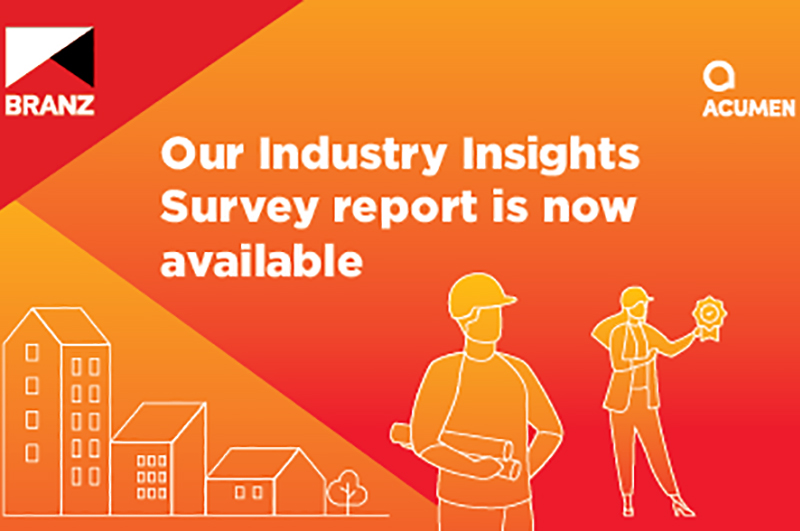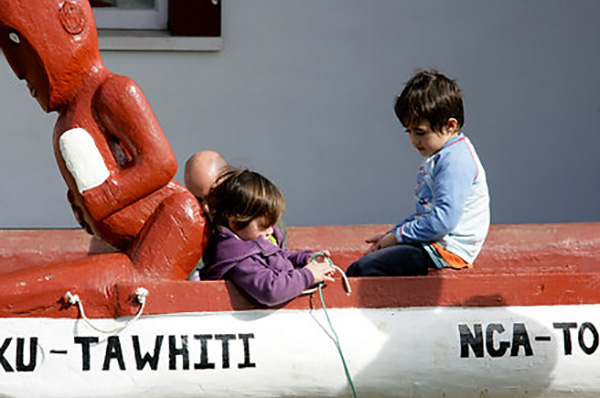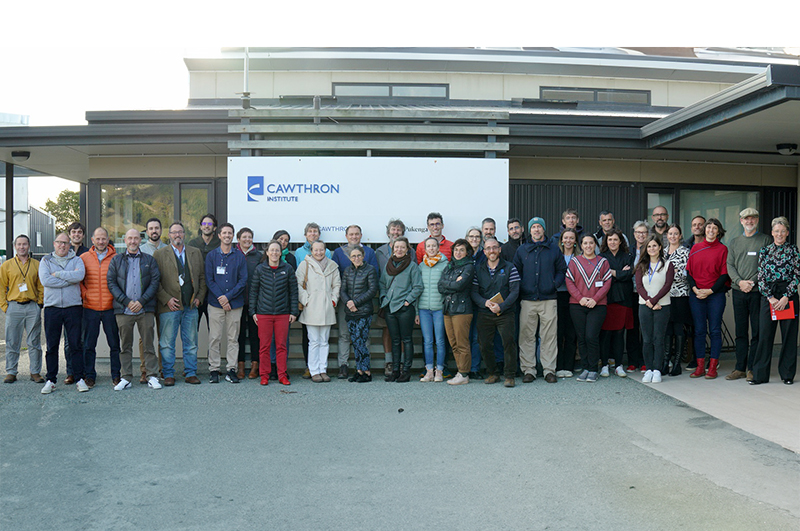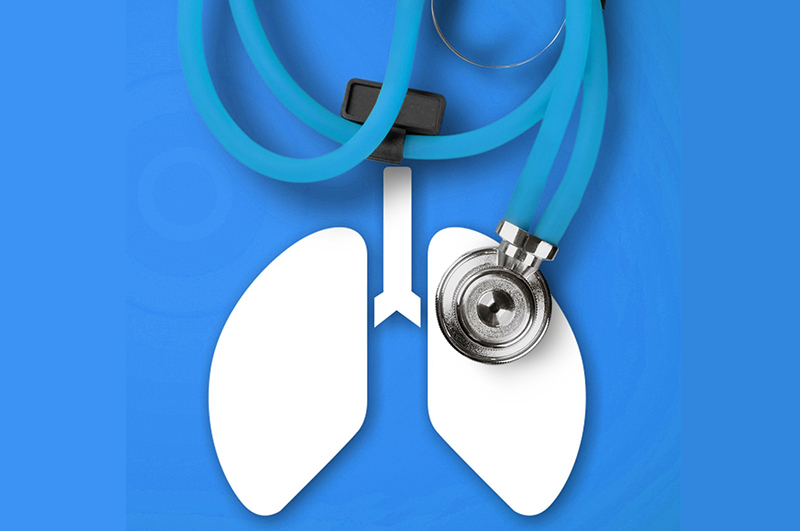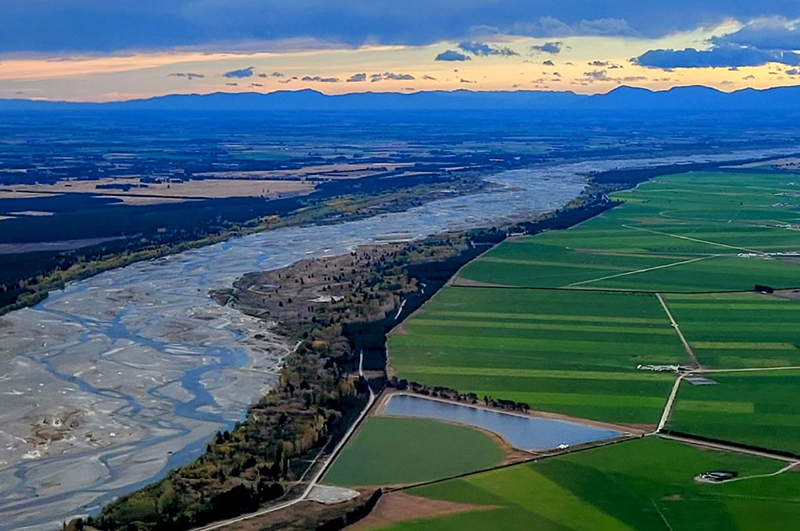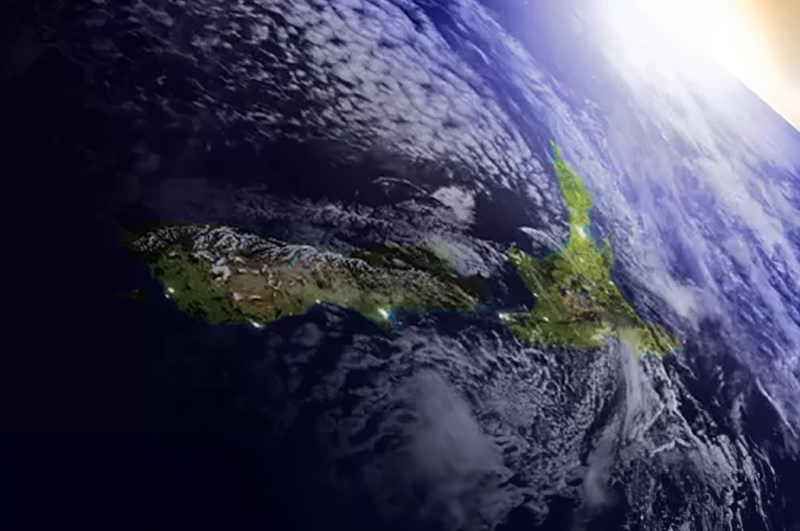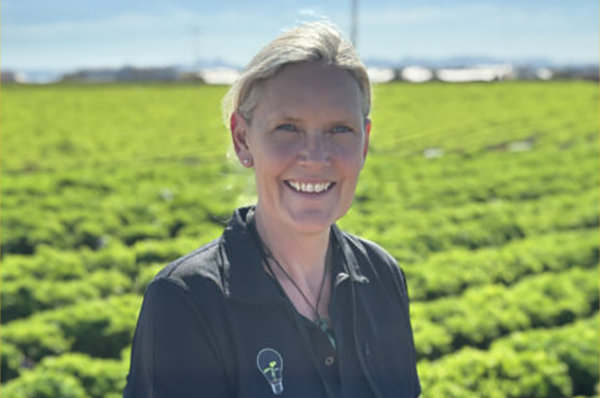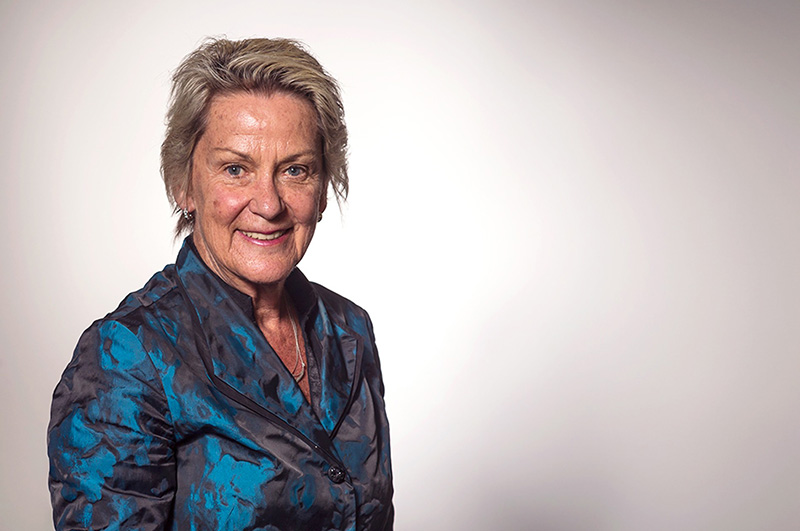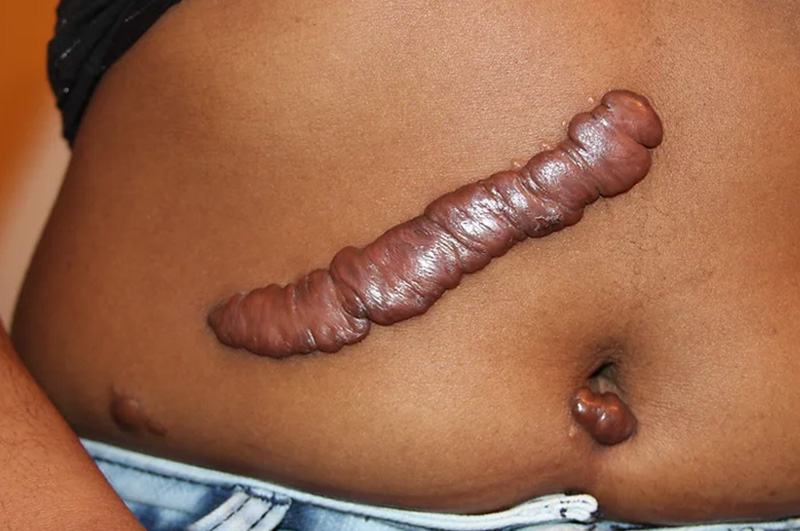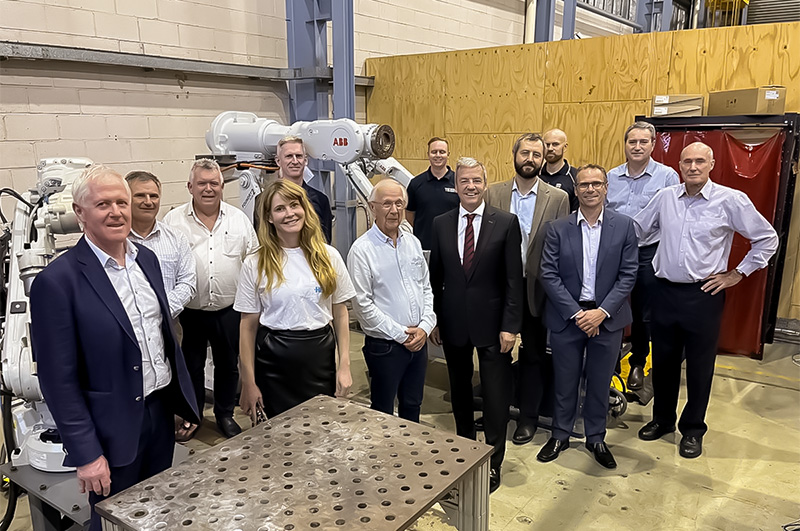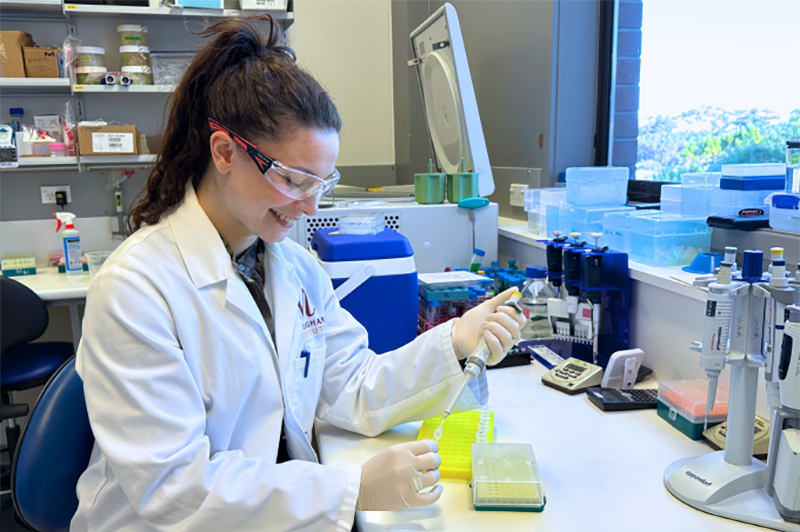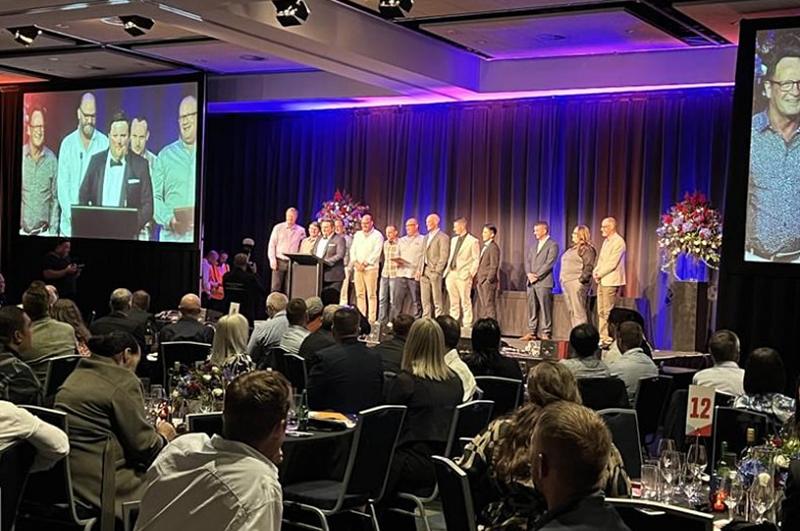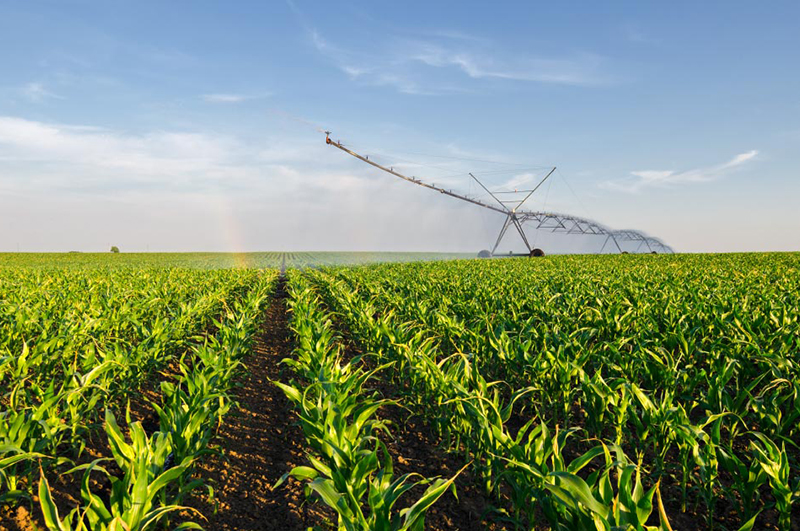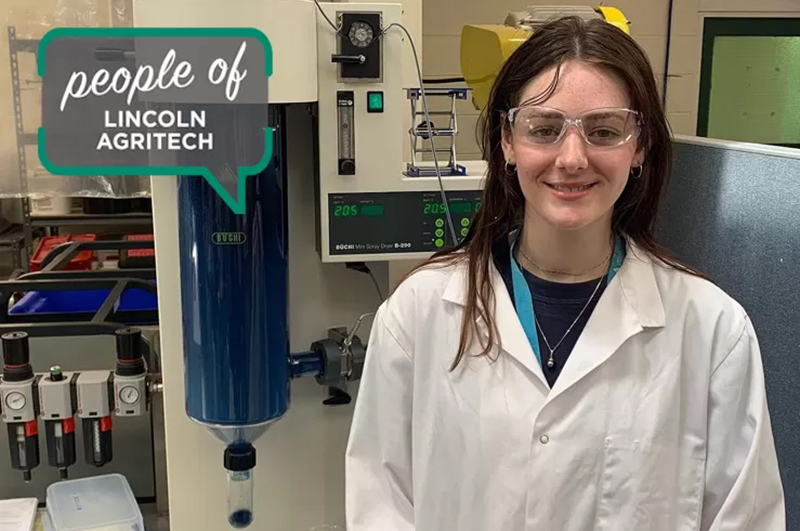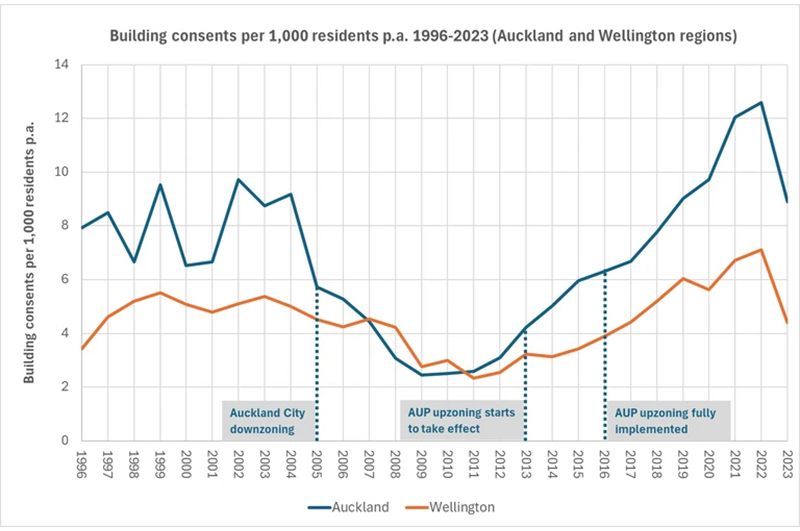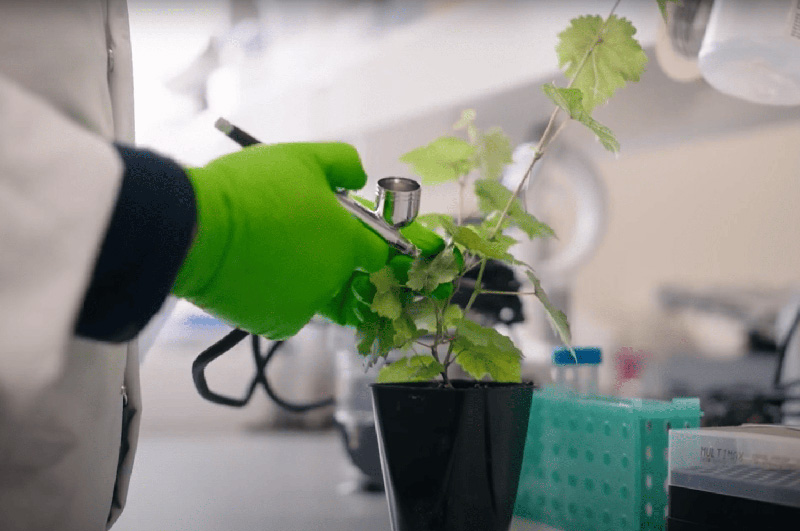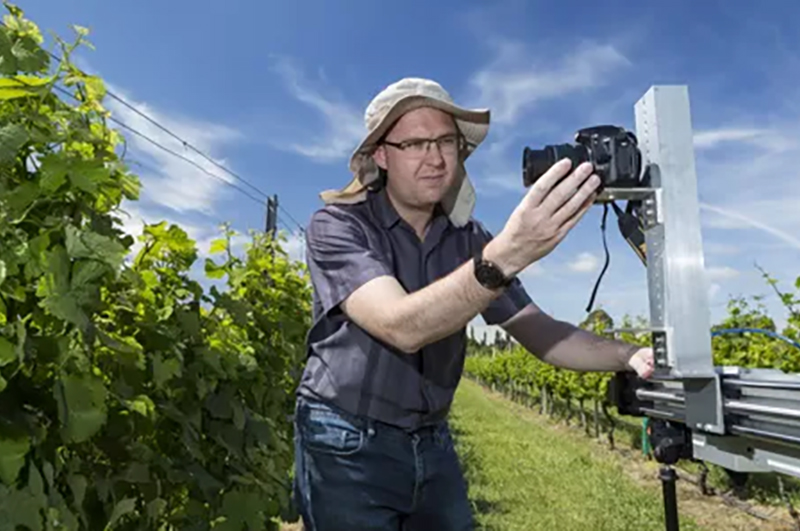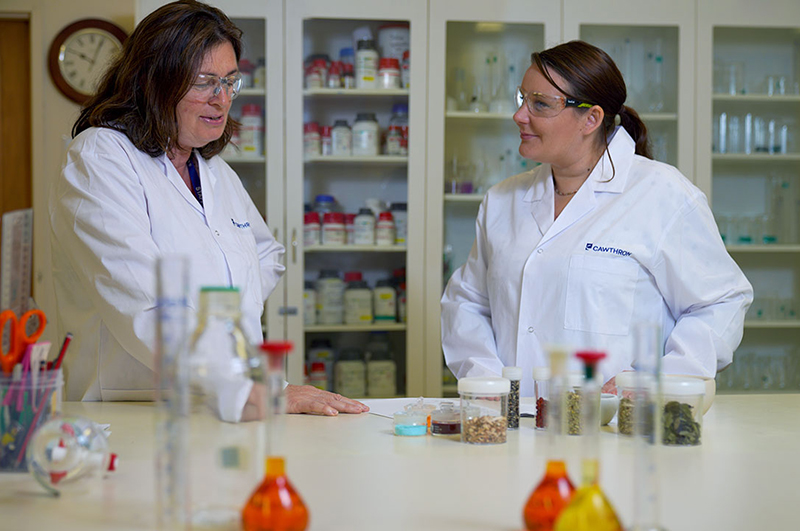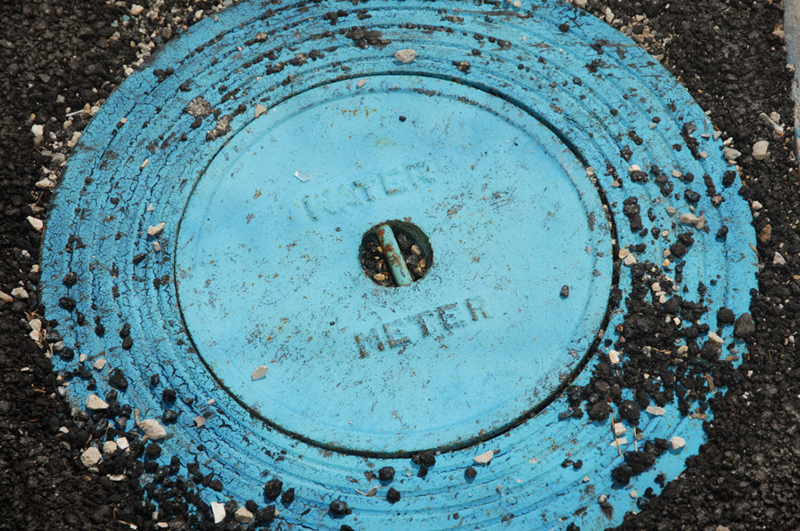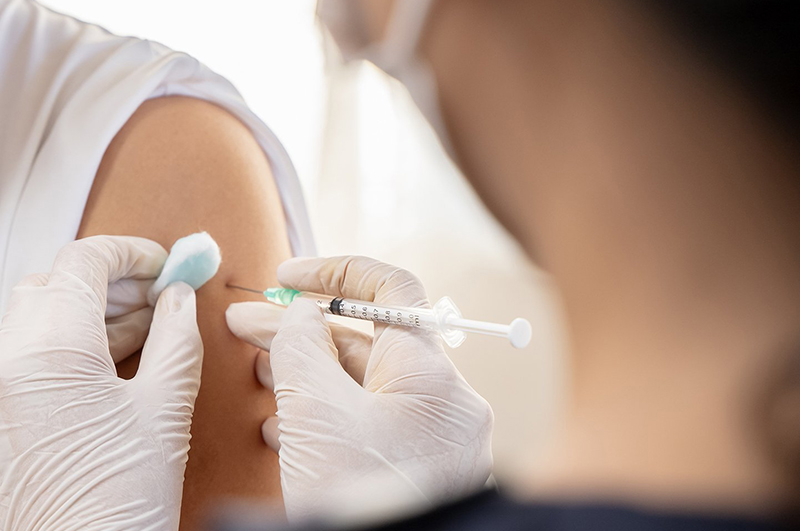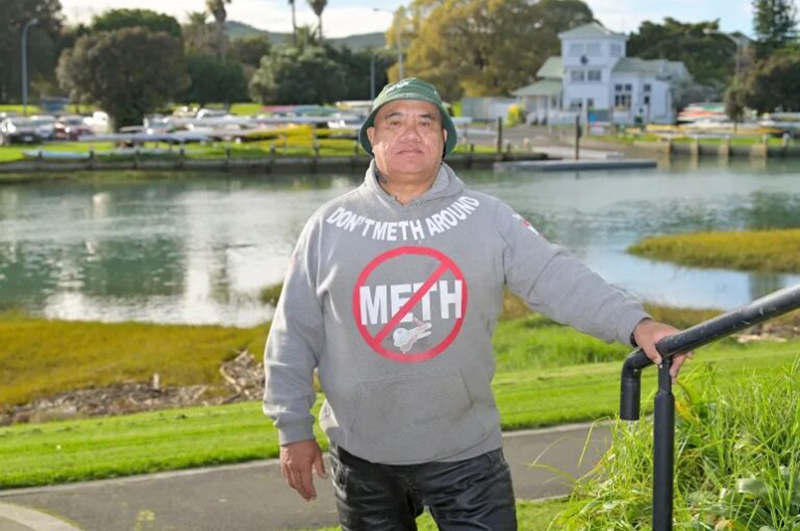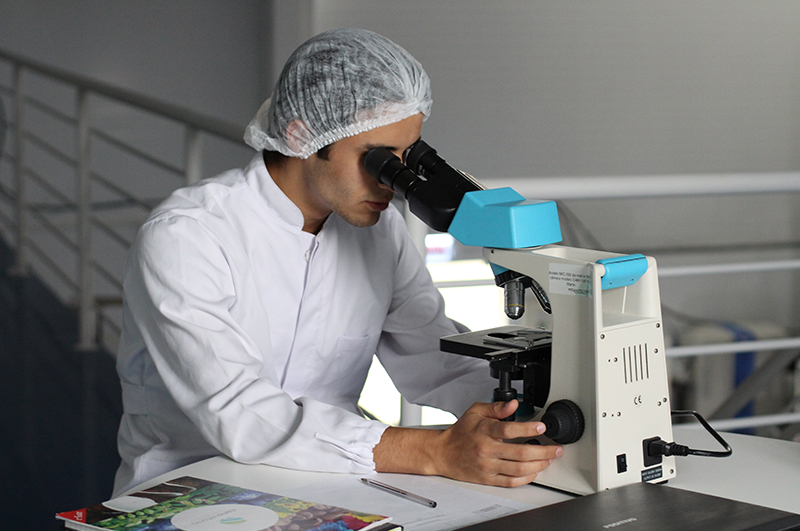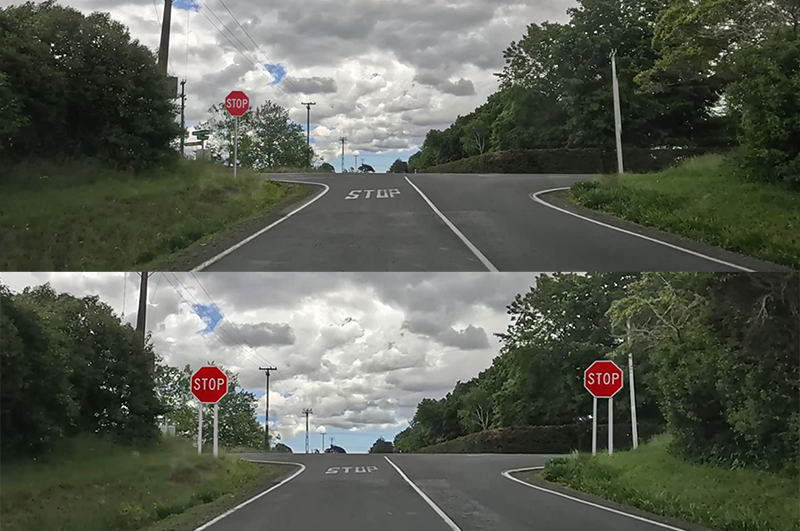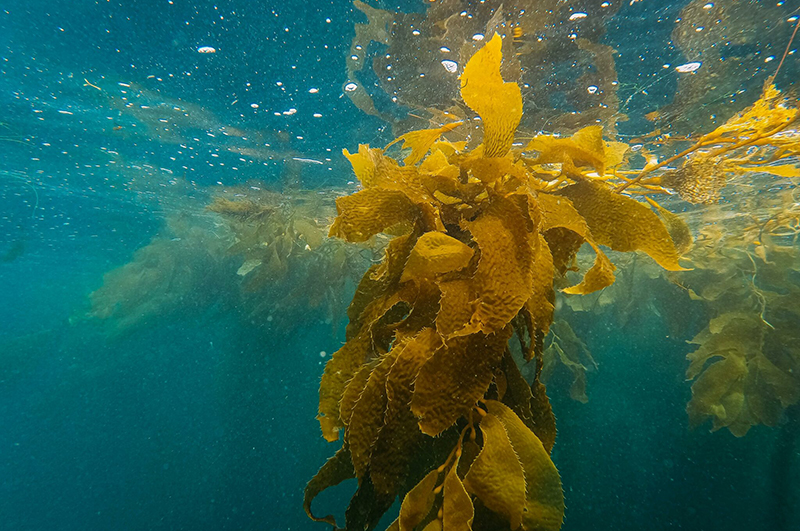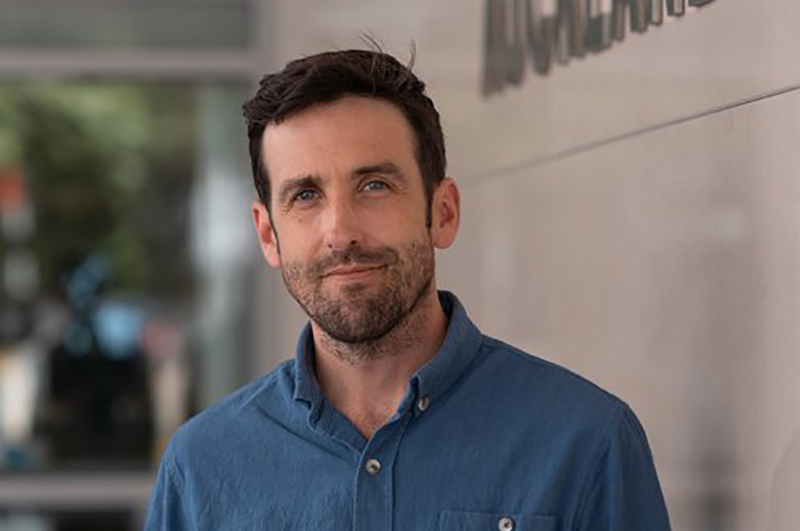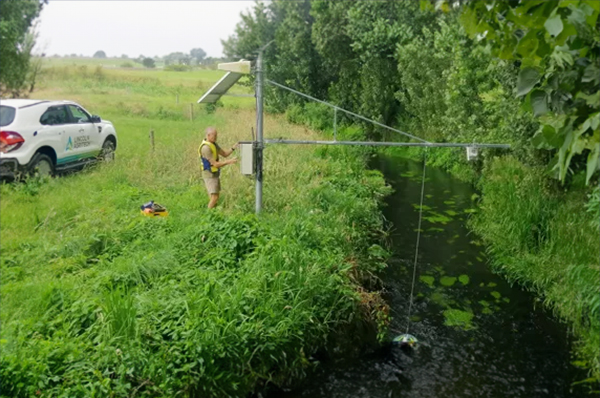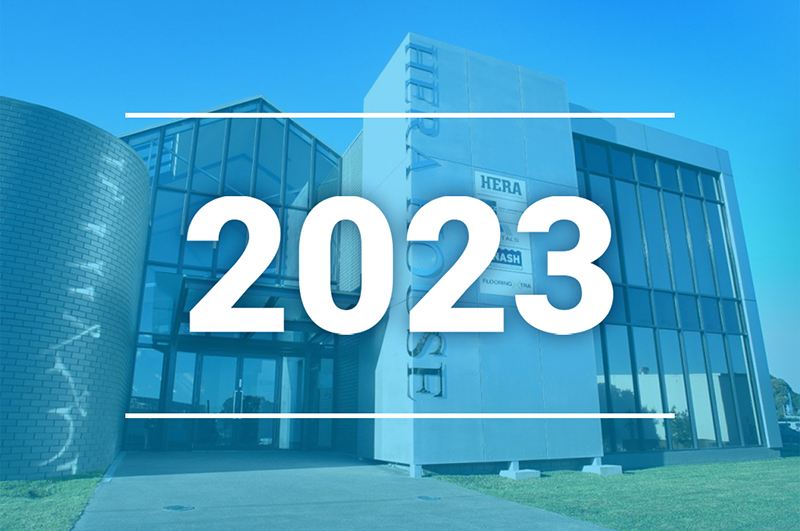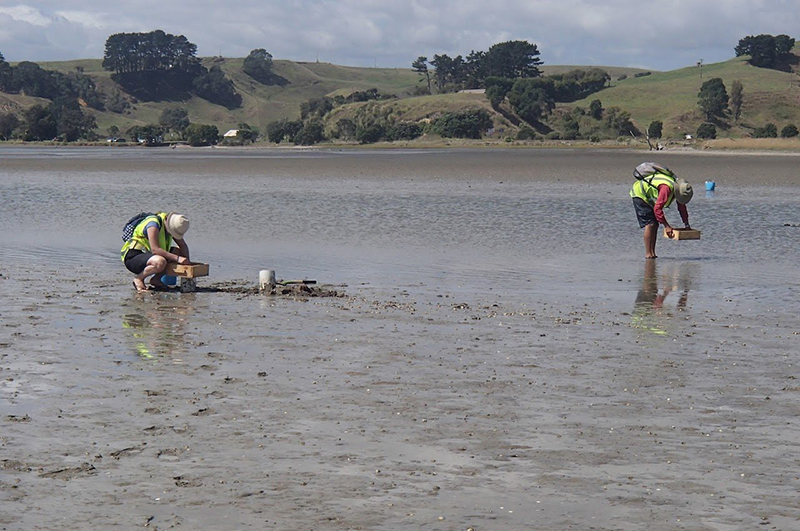News
Archives: 2023 | 2022 | 2021 | 2020 | 2019 | 2018 | 2017
News
Malaghan: Phase 2 clinical trial underway
July 2024: A phase 2 clinical trial of a new CAR T-cell therapy is getting underway at Wellington Hospital this month, on the back of promising phase 1 results that suggest improved safety compared with leading commercial CAR T-cell therapies, while remaining highly effective for B-cell non-Hodgkin lymphomas.
Chimeric antigen receptor (CAR) T-cell therapy is a personalised cell therapy, in which a patient’s own immune cells are reprogrammed to recognise and eliminate cancer cells. Malaghan Institute Clinical Director Dr Robert Weinkove says commencing a phase 2 trial is a major step towards CAR T-cell therapy becoming a standard of care for certain blood cancers in New Zealand.
“We have final regulatory and ethical approvals, our first site is ready to go, and clinicians around New Zealand have been advised of the criteria and how to refer patients. We hope this new trial will confirm effectiveness and safety of our new NZ-developed CAR T-cell therapy and result in registration for routine use in New Zealand and overseas.”
The ENABLE-2 team. Image: Malaghan Institute of Medical Research.
Aqualinc: Out of sight, front of mind
July 2024: Groundwater has been referred to as the hidden resource because it is usually “out of sight, out of mind”. But for Canterbury’s rural communities, groundwater has been front of mind for decades; providing water supplies for irrigation, stockwater, farm and domestic use. In the July issue of Canterbury Farming Newspaper, Dr Andrew Dark from Aqualinc talks about groundwater as an energy source and how irrigation from groundwater has transformed the landscape and socio-economic fabric of parts of the Canterbury Plains that were previously highly drought-prone.
"Whether this transformation has gone too far, both in terms of the volumes of water abstracted and the introduction of contaminants related to land-use to the groundwater system, is a topic of intense debate."
There are several facets of groundwater systems that are beginning to receive more attention, including the role of groundwater in flooding, its contribution to hazards for the built environment, and its potential as an energy source.
Ground source heat pumps (GSHPs) have been a feature of the post-quake rebuild for Christchurch, with several large building projects incorporating them. Image: Aqualinc Research.
Cawthron: Habitats vulnerable to gold clam invasion
July 2024: A new study has modelled which habitats in Aotearoa New Zealand might be most vulnerable to gold clam invasion in the hope that management efforts can be targeted effectively. The findings suggest that the highest risk areas are mostly located in the North Island, in particular, northern Waikato, Auckland, Northland, Bay of Plenty and Hawke’s Bay. In the South Island, areas with the highest habitat suitability included Marlborough, North Canterbury, and Christchurch.
The gold clam (Corbicula fluminea) is a highly invasive freshwater mollusc, which was detected in Aotearoa New Zealand in 2023. Currently, it has only been observed in the Waikato catchment, but there is significant concern it will spread across the country. The paper’s lead author, University of Otago student Rose Somerville, completed the study alongside Cawthron Institute freshwater scientists Dr Calum MacNeil and Dr Finnbar Lee while on placement at Cawthron as a summer scholar.
Gold clams which were first discovered in New Zealand in 2023, and have currently only been detected in Waikato. Image: Rose Somerville / Cawthron.
Malaghan: Rejuvenating the ageing immune system
July 2024: The body’s ability to overcome infection becomes less effective as we age. In an international research effort, Malaghan postdoctoral research fellow Dr Theresa Pankhurst is focussed on producing vaccines to revitalise the ageing immune system.
During the Covid-19 pandemic, more than 74% of global deaths occurred in people over the age of 65. Likewise, most deaths from respiratory viruses like influenza and RSV occur in people in this older age group, with risk increasing sharply with advancing age. So, what happens as we age that reduces our body’s ability to fight infections? And what can we do to power up the immune system in later stages of life? These are questions that Theresa is trying to answer.
Theresa (Ngāi Tahu, Ngāti Kahungunu, Ngāti Porou) is undertaking research in fellow Kiwi Dr Michelle Linterman’s lab at the Babraham Institute in Cambridge, UK. Theresa has been awarded both the Te Urungi Churchill College Fellowship and Te Niwha’s Kia Niwha Leader Fellowship to support her research to develop vaccines for the ageing immune system, a collaboration between the Babraham and Malaghan Institutes.
Dr Theresa Pankhurst. Image: Malaghan Institute of Medical Research.
Connections 48 eNewsletter out now
July 2024: Another bumper issue of the IRANZ newsletter is out now. It's chock full of the latest independent science research news from around Aotearoa New Zealand.
IRANZ submission to SSAG calls for support of IROs
HERA: Which matters more? Excellence or impact?
Malaghan: Revolution in cancer care is near
MRINZ: AI poised to revolutionise clinical trials
Mātai: New brain blood flow metric offers insights into Alzheimer's
Takarangi: A question of identity
Motu study highlights wellbeing benefits for arts sector workers
Bragato: Sequencing New Zealand taonga
Cawthron: Toxic bloom affecting Waiheke beaches
Lincoln Ag: Monitoring grazed pasture quality from space
Aqualinc: Will regulatory changes help farmers?
. . . And much more.
Recent collaborative projects for the Bragato lab team have included sequencing efforts for native birds such as the tara iti (fairy tern) and tītitipounamu (rifleman). Photo: Louise Thomas.
IRANZ submission calls for support of IROs
July 2024: In a move to redefine New Zealand’s science, innovation, and technology (SIT) landscape, the Independent Research Association of New Zealand (IRANZ) made a compelling submission to the Science System Advisory Group (SSAG) chaired by Sir Peter Gluckman. The submission, part of the Phase 1 IRANZ input, outlines key policy recommendations aimed at broadening the recognition and support for Independent Research Organisations (IROs) within the country’s public research framework.
During a meeting with IRANZ on 18 June, Sir Peter Gluckman acknowledged the importance of inclusive policies that support the diversity of New Zealand's research landscape, but said that change in the system was critical. “I think everybody agrees that the system as we have it is dated and needs change. In fact, in the 450 submissions between the two reviews, that was virtually the most common commentary that was made - that changes are needed,” Sir Peter remarked.
“There'll be debate over the detail, but I think the bottom line, the key messages are not too dissimilar.”
Sir Peter Gluckman, president of the International Science Council, is leading the Science System Advisory Group.
IRANZ June news briefs
July 2024: Follow the link for more details on the June 2024 news briefs from our Independent Research Organisations.
- IRANZ welcomes Hauhau Research
- Bragato Research Institute appoints new CEO
- Takarangi Research: Merata Kawharu guest presenter at Oxford conference
- Cawthron scientists foster French connection
- Malaghan: Kia Niwha Leader Fellowship for Malaghan vaccine researcher
- Malaghan scientists appointed in leadership roles in New Zealand's RNA Platform
- MRINZ Deputy Director Matire Harwood Made Companion of the King’s Service Order
- Anagenix announced winner of 2024 Cawthron Innovation Award
- Motu’s Stuart Donovan appointed to the Housing Expert Advisory Group
- Lincoln Agritech: Hydro-Metrics now a standalone company
- Lincoln Agritech: Beyond No 8 webinar series
Dr Merata Kawharu of Takarangi Research was a guest presenter at the Nature-based Solutions Conference at Oxford University from 18-20 June. Photo: Takarangi Research.
Bragato: Building vineyard soil health
July 2024: Soil health is crucial for grapevine health and wine quality, making it a key focus for Bragato Research Institute (BRI). Recognizing the decline in soil health across New Zealand vineyards, BRI conducted a 2023 survey identifying various soil management practices such as irrigation, reducing compaction, and using cover crops, mulching, or composting. However, the complexity of soil management due to varying soil characteristics, climate, and grower goals leaves many uncertain about the best practices for their specific needs.
The survey revealed that 96% of growers seek more detailed, location-specific information to improve soil health. Responding to this need, BRI, in collaboration with Plant & Food Research and the Marlborough District Council, developed a proof-of-concept tool to guide site-specific soil management. This tool provides detailed soil property information and tailored management recommendations based on soil susceptibilities affecting vine performance. BRI aims to refine this tool based on feedback to create a valuable resource for the wine industry, helping growers make informed and effective changes to enhance soil health.
Image: Bragato Research Institute.
MRINZ: HRC Grant fuels REMAP-CAP study
July 2024: The REMAP-CAP study (Randomised, Embedded, Multifactorial, Adaptive Platform for Community-Acquired Pneumonia), active in 12 intensive care units in Aotearoa New Zealand was awarded a 5 million dollar Health Research Council of New Zealand Programme Grant on 27 June. Dr Colin McArthur and Dr Tom Hills, who jointly lead the MRINZ Infectious Diseases programme, oversee the study, supported by a large research team across the motu.
Severe pneumonia, often caused by influenza, remains a common and serious health issue, particularly affecting Māori. Since its inception in 2016, REMAP-CAP has been funded by the Health Research Council (HRC) and has focused on identifying the most effective treatments for severe pneumonia and influenza. Its adaptive design is also capable of swiftly responding to emerging pandemics.
In 2020, with the onset of the COVID-19 pandemic, REMAP-CAP quickly pivoted to address this new threat. Enrolling more than 10,000 participants with COVID-19 globally, the study provided crucial evidence on effective treatments such as corticosteroids, immune modulators, and optimal blood-thinning doses.
Image: MRINZ.
Mātai: Tairāwhiti Study aims to 'revolutionise paediatric medicine'
June 2024: Researchers from Mātai Medical Research Institute are conducting a pioneering "Tairāwhiti Study" to advance paediatric medicine. This initiative involves scanning over two dozen children to enhance understanding of anatomical variability across vital organ systems, including the brain, heart, lungs, and musculoskeletal system.
Recently, Henry McMullan from TVNZ 1 News visited Mātai Medical Research to report on their progress. The study employs cutting-edge imaging technologies and computational modeling to develop predictive models. Researchers aim to prevent disorders, enhance diagnostic precision, and personalize treatments, aiming to set new standards in child health.
"Our goal is to transform how we assess and treat children," emphasized study researchers, highlighting global potential for breakthroughs in child health.
Supported by the Auckland Bioengineering Institute, the pilot study has already shown promising outcomes. Collaborations with Tōnui Collab also aim to encourage local youth towards careers in science and technology.
For further insights, catch the segment featuring Henry McMullan on TVNZ 1 News.
Lincoln Agritech: National maps show nitrate risk
June 2024: Scientists from Lincoln Agritech and ESR have released updated national maps forecasting areas unlikely to experience groundwater nitrate contamination, even where specific testing hasn’t occurred.
Developed over a decade, these advanced models, now accessible via the National Science Challenge Our Land and Water’s Data Supermarket, incorporate variables like soil type, geology, and hydrology. The new model has better prediction accuracy compared to previous versions, integrating data from wells with known redox states to predict conditions in untested regions.
Nitrate contamination varies due to land use and groundwater's natural denitrification potential, where bacteria convert nitrate to harmless nitrogen gas under oxygen-depleted conditions.
Dr Theo Sarris of ESR says, “The redox status of groundwater is a useful indicator for identifying potential denitrification zones, as an ecosystem service for tailored land management and targeted environmental regulations,”
Photo: Lincoln Agritech.
Mātai: New brain blood flow metric offers insights into Alzheimer's
June 2024: Researchers from Mātai Medical Research Institute and Auckland Bioengineering Institute have introduced a groundbreaking metric for analyzing brain blood circulation, as published in Scientific Reports – Nature. Led by first author Sergio Dempsey and co-authors Dr Soroush Safaei, Dr Gonzalo Maso Talou, and Dr Samantha Holdsworth, the team utilized 4D flow MRI technology to develop this innovative approach.
This metric focuses on assessing blood pulsation through brain vessels, akin to wrist pulse with each heartbeat. It evaluates pulse regulation across vessel sizes, crucial for brain oxygen and nutrient distribution. It identifies risks linked to high pulsatility in small brain vessels, crucial in various brain conditions.
"Our findings are a promising step towards better understanding the vascular contributions to neurodegeneration," says Dr Holdsworth, from Mātai and the Faculty of Medical and Health Sciences, University of Auckland.
The study underscores the importance of understanding brain blood pulsatility for clarifying disease mechanisms and exploring new treatments. The team aims to advance clinical strategies to impact patient care and outcomes.
Photo: Mātai Medical Research Institute.
Motu study highlights wellbeing benefits for arts sector workers
June 2024: A new working paper by researchers from Motu Economic and Public Policy Research explores the intriguing dynamics of the arts labour market, revealing that employment in this sector, despite often being associated with lower pay, offers significant wellbeing benefits to workers.
The study, titled "Working for fun? The impact of employment in the arts sector on wellbeing," authored by Thomas Benison, Trinh Le, and Arthur Grimes, delves into why the arts sector continues to attract an excess supply of workers despite its financial drawbacks. Using data from the New Zealand Census and household surveys, the researchers find that arts workers typically earn about 20% less than their counterparts in other sectors. However, they also note that approximately half to two-thirds of this wage gap can be attributed to differences in observed characteristics between the two groups.
While the study does not establish causality, it provides indirect evidence suggesting that employment in the arts sector positively impacts workers' wellbeing. This boost in wellbeing, referred to as "psychic income," may help explain why many individuals choose to remain in the arts sector despite lower financial returns.
Photo: Getty Images, UnSplash.
Malaghan: The ever-evolving world of immunology research
June 2024: Arguably the most important security guard of our immune system, dendritic cells could be the key to understanding how our immune system responds to allergies. It’s a focus for research officer Abbie Larson from the Ronchese Lab, who is using advanced technologies to evolve our thinking.
Our immune system is a complex network of cells and proteins that work together to defend our bodies from invaders. Dendritic cells are a key player in this defence mechanism, acting like security guards, patrolling our bodies for intruders like bacteria, viruses, or other foreign particles.
“Dendritic cells work by continuously sampling their environment, breaking down any foreign particles they encounter and presenting these fragments to other immune cells. If these fragments are identified as threats, the immune system kicks into action, triggering an immune response,” says Abbie.
“Unfortunately, sometimes dendritic cells can get a little too enthusiastic and can misidentify harmless substances, like pollen or dust as dangerous invaders. This can ultimately cause the symptoms of allergies such as rashes, swelling and inflammation.”
Abbie Larson. Photo: Malaghan Institute of Medical Research.
Aqualinc: Will regulatory changes help farmers?
June 2024: In the June issue of Canterbury Farming newspaper, Matt Bubb from Aqualinc explores the topic "Will regulatory changes help farmers?" The full article is also available on Aqualinc's website.
The coalition Government is currently amending the Resource Management Act (RMA) and several key documents governing water resource management. Since these changes were announced, there has been extensive dialogue with farmers about the potential benefits for farming communities. Optimism is high that the proposed reforms will bring significant improvements.
The Government has emphasized its intention to cut unnecessary red tape and bureaucracy, aiming to reduce the number of consents required and simplify the consenting process. This, in turn, is expected to alleviate the burden on both applicants and Councils by making the process less complex, time-consuming, and costly.
However, as of now, no notable changes have been observed. Despite the Government's clear intent, Councils must continue to assess consent applications based on current regional plans and national regulatory documents. Consequently, significant changes will only be possible once formal amendments to the existing rules framework are implemented.
Photo: Aqualinc Research.
BRANZ releases Industry Insights 2024 report
June 2024: BRANZ has unveiled its latest Building Industry Insights 2024 report, continuing a tradition that spans over two decades. Conducted biennially, this comprehensive survey serves as a crucial pulse check for the building and construction sector, identifying system needs and guiding BRANZ’s research investment priorities.
This year's survey involved over 500 respondents and included 24 detailed interviews with sector participants, ranging from designers and engineers to builders, tradespeople, government officials, and research professionals. The survey explored key priorities, issues, and opportunities in areas such as build performance, workforce dynamics, information resources, the Building Code, and emerging innovations like standardisation, prefabrication, and technological advances.
The resulting report offers an in-depth analysis of the survey responses and interviews, providing valuable insights into the current state of the building system. These findings support BRANZ’s ongoing environmental scanning and system awareness efforts, guiding future research prioritisation, focus, and investment.
Image: BRANZ.
Takarangi: A question of identity
June 2024: Mā te rongo, ka mōhio; Mā te mōhio, ka mārama; Mā te mārama, ka mātau; Mā te mātau, ka ora. Through resonance comes cognisance; through cognisance comes understanding; through understanding comes knowledge; through knowledge comes life and well-being.
How connected are Māori youth to ancestral marae, and does it matter? A project by Takarangi Research Group investigated issues about marae connection and identity. The research was lead by Merata Kawharu, Paul Tapsell, Stephen McTaggart and Krushil Watene.
The three-year project saw the team engaged in discussions with Māori youth and their source communities to broaden understandings of marae amid transformations of ‘community’ occurring both at home and overseas.
The findings are now published on the Takarangi website. The report contains observations of trends, problems, and positive strategies related to rangatahi, Marae, and connectivity that an 'Eight Kura cohort' shared with the research team. The team hopes the information will be useful for all kura across Aotearoa New Zealand and contribute to discussions on similar issues facing indigenous peoples internationally regarding home connection and identity.
Photo: Takarangi Research Group.
HERA: Which matters more? Excellence or impact?
June 2024: HERA CEO Dr Troy Coyle writes about the differences between excellent research that has impact vs impactful research that is excellent, and the potentially harmful bias in the New Zealand Science System. It's a timely article and a discussion we have been having ourselves at IRANZ as we prepared our submission for the Science System Advisory Group in May.
"The Aotearoa New Zealand research, science and innovation (RSI) system is one that purportedly values and rewards research excellence and research impact equally.
"Despite this, the current system favours an approach that focuses on excellent research that has impact vs impactful research that is excellent."
Dr Coyle writes that an alternative approach is to ensure that all proposals are assessed for both impact and excellence or that impact is the first hurdle. "Surely, all research must be high impact? Is there any point doing the most excellent research in the world if it has no impact?"
"How have we got it so wrong? Is this a sensible way to do things? I can see why it is done this way. . .it leads to less resources being required for project assessment. However, is that the best outcome for how our major RSI funding is allocated?"
Bragato: Sequencing New Zealand taonga
June 2024: When the Bragato Research Institute installed an Oxford Nanopore PromethION Sequencer at its Grapevine Improvement Laboratory, it marked a significant milestone in New Zealand's scientific capabilities. The installation was the first high-throughput single-molecule sequencer in the country, a groundbreaking advancement for genetic research.
The advanced sequencing technology has been made available to researchers across various fields, fostering unique collaborations with scientists both within New Zealand and internationally. One area experiencing significant demand involves the study of New Zealand's native species. Researchers focusing on native flora and fauna recognize these species as taonga (treasures), and they value the use of Aotearoa-based services and expertise to ensure appropriate stewardship of samples and data.
Recent collaborative projects have included sequencing efforts for native birds and mammals such as the tara iti (fairy tern), tītitipounamu (rifleman), and pekapeka (New Zealand lesser short-tailed bat). The lab team at Bragato has developed significant expertise in handling challenging samples, a category often applied to plants. This expertise has extended to collaborations involving insects and marine organisms, including sea urchins, corals, and sea cucumbers.
The tītitipounamu or rifleman (Acanthisitta chloris). Photo: Louise Thomas.
Cawthron scientists foster French connection
June 2024: Scientists at Cawthron Institute in Whakatū Nelson have welcomed approximately 20 scientists from IFREMER, the French national institute for ocean science and technology, for a five-day knowledge exchange workshop.
Cawthron’s Chief Science Officer Dr Cath McLeod said the focus of the visit will be on exploring opportunities for research collaboration in areas of shared interest, including biodiversity and the blue economy.
“As research institutes dedicated to understanding and protecting the world’s oceans from urgent and increasing environmental pressures, Cawthron and IFREMER are eager to collaborate to leverage our efforts and have a greater combined impact,” says Dr McLeod.
“We’re keen to work together in a few priority areas including the impact of climate change on human and environmental health, advancing the future of marine aquaculture and transitioning towards sustainable blue economies.”
IFREMER’s scientific director, Dr Chantal Compère, said that while the ocean offers great potential in terms of biological resources for the benefit of society, there are challenges that must be overcome if this potential is to be realised sustainably.
IFREMER scientists with Cawthron colleagues at the Cawthron Aquaculture Park in Nelson. Photo: Cawthron Institute.
Cawthron: Toxic bloom affecting Waiheke beaches
May 2024: Dr Laura Biessy, Microaglae Team Leader at the Cawthron Institute, writes about the sludge that's been turning up on Waiheke Island's beaches the past few summers.
"Waiheke Island’s beautiful beaches are beloved by locals and visitors alike, but for the past few summers people have been disappointed by the presence of a stinky and hazardous black sludge that has appeared on shore.
"This sludge had not been a dominant feature of the local marine ecosystem of Waiheke, but beginning in November 2022 following severe and wild weather events, hundreds of tons of unidentified mats washed up and decomposed on the beach, in particular on Shelley and Blackpool beaches. Over the 22/23 summer, Auckland Council removed close to 400 tonnes of this material and nearby residents began experiencing headaches as well as eye and throat irritations leading the Council to begin investigations.
"As Cawthron Institute is an important centre in Aotearoa New Zealand for research into toxic algae, Auckland Council asked us to identify the species and test for toxins."
Okeania mats washed ashore on Waiheke Island and decomposed to form a black sludge. Photo: Cawthron Institute.
MRINZ: Asthma hospital admissions coming down
May 2024: Recent findings released by the Medical Research Institute of New Zealand (MRINZ) underscore New Zealand’s pioneering role in adopting an innovative asthma management strategy, now recognised as the optimal asthma treatment.
The MRINZ study, Patterns Of Asthma Medication Use And Hospital Discharges In New Zealand, published recently in the Journal of Allergy and Clinical Immunology: Global, has shown that New Zealand is leading the world in the uptake of a novel management approach recommended as optimal asthma treatment.
The study revealed a remarkable 108% rise in the usage of the combination 2-in-1 inhaler budesonide/formoterol between 2019 and 2022. This surge in budesonide/formoterol use coincided with a notable 17% decrease in hospital admissions for asthma during the same timeframe.
Over the past decade, pivotal clinical trials conducted by MRINZ have established the superiority of the 2-in-1 inhaler in preventing severe asthma attacks compared to traditional single reliever inhalers. These studies laid the groundwork for the 2019 Global Initiative for Asthma (GINA) guidelines' endorsement of the combination inhaler as the preferred reliever medication across asthma severity levels.
Image: Medical Research Institute of New Zealand.
Bragato: Trials highlight unique aromatic profiles in Marlborough Sauv Blanc
May 2024: Fermentis, in collaboration with the Bragato Research Institute (BRI), has been conducting yeast trials at the Bragato Research Winery to evaluate the impact of different yeasts on Marlborough Sauvignon Blanc. Over several vintages, these trials aimed to help winemakers enhance their wine portfolios by achieving a new balance of fruit, aroma, depth, and structure.
Sauvignon Blanc, which constitutes up to 73% of New Zealand’s wine production, is renowned for its aromatic intensity, featuring dominant gooseberry and capsicum notes, with tropical and passionfruit overtones. Additional common aromas include grapefruit, lime, cut grass, and tomato stalks.
The Bragato Research Winery, equipped with custom fermentation tanks, facilitated the trials with four 17-litre tanks, allowing for four individual fermentations under identical conditions. These micro-vinifications underwent sensorial analysis by a panel of 17 professional tasters and were complemented by qualitative and quantitative analyses of higher alcohols, esters, and thiols.
The results demonstrated that each Fermentis yeast contributed distinct aromatic and sensory profiles to the Sauvignon Blanc, offering valuable insights for winemakers aiming to refine their craft and expand their wine offerings.
Photo: Bragato Research Institute.
Aqualinc: Storage options for maintaining and growing resilience
May 2024: In the May issue of Canterbury Farming newspaper, Dr Andrew Dark from Aqualinc talks about "Storage options for maintaining and growing resilience", his article is reproduced on the Aqualinc website.
Irrigation water supplies have been under pressure this summer, with the Government classifying Canterbury and a number of other regions as being under drought conditions.
“That pressure has also been felt by irrigation systems that include storage: we’ve seen several headlines accompanied by images of dams with very low water levels. In the face of a changing climate, it’s going to be increasingly important to ensure that water storage systems – including those that are already in place – are adequately designed to deliver the required levels of water supply security alongside other co-benefits such as environmental flows and recreational opportunities,” writes Andrew.
"Previous long, dry summers have prompted thinking (both within farming circles, and in local and central government) about water storage as a means of maintaining the long-term resilience of existing irrigated land uses and enabling growth or land-use change."
Securing adequate water sources has become challenging, factors include existing water allocations being at or near limits in many areas, and uncertainty around future regulations. Photo: Aqualinc.
Malaghan: Making CAR T-cells more effective
May 2024: PhD student Jarem Wylie is researching ways to make CAR T-cell therapy even more effective and safer so that it can be applied to a broader range of cancers. His studies have taught him that negative results are as informative as breakthroughs in scientific discovery.
Working in the Hermans lab, Jarem’s research is part of the Malaghan Institute’s CAR T-cell programme, focusing on expanding and improving this cutting-edge technology.
“Currently, CAR T-cells have proven most effective against blood cancers. This is because CAR T-cells are injected into a patient’s blood stream and circulate until they encounter the cancer cells,” says Jarem.
However, CAR T-cell therapy has not been as successful with types of cancers that form solid tumours such as lung cancer or stomach cancer. The rapidly multiplying cells clump together to produce a mass that is difficult for CAR T-cells to target. Jarem’s PhD aims to find potential strategies to help CAR T-cells to overcome these hurdles.
“We’re currently investigating a range of approaches that may lead to the development of therapies that are more durable and effective at targeting different types of tumours, including solid tumours,” says Jarem.
PhD student Jarem Wylie. Photo: Malaghan Institute of Medical Research.
Lincoln Ag: Monitoring grazed pasture quality from space
May 2024: Lincoln Agritech is one of 12 New Zealand research organisations taking a bold leap into space, in a new work programme funded by the New Zealand’s Space Agency and working with NASA.
Called Catalyst: Strategic – New Zealand – NASA Research Partnerships, the programme provides up to $75,000 for six-month feasibility studies unlocking information about the environment, Earth systems and climate through observation from space.
NASA’s contribution is in kind, making its experts available for consultation and advice. Research began in April. The New Zealand Space Agency is part of the Ministry of Business, Innovation & Employment (MBIE).
Lincoln Agritech is working with partner AgResearch to investigate monitoring pasture quality through satellite imagery.
“It’s already possible to assess the amount of feed available for livestock through satellite imagery, but we don’t know the quality of that feed,” says Lincoln Agritech’s Group Manager, Precision Agriculture Armin Werner.
Lincoln Agritech is investigating monitoring pasture quality through satellite imagery. Photo: NASA.
MRINZ: AI poised to revolutionise clinical trials
May 2024: In a groundbreaking collaboration between medical researchers from Aotearoa New Zealand and the United States, a recent study has unveiled a transformative approach to personalised medicine using cutting-edge machine learning techniques.
Published in JAMA, the study titled Effects of Individualized Oxygenation Targets on Mortality in Critically Ill Adults: A Machine Learning Analysis marks a significant leap forward in how clinical trials are conducted and how patient outcomes are optimised.
The traditional model of randomised clinical trials, while invaluable in establishing the average effects of treatments on patient populations, often falls short in accounting for individual variability in treatment responses. This limitation has long been a point of contention in medical practice, pushing clinicians to navigate the delicate balance between personalised care and evidence-based medicine.
The research team, led by experts including Professor Paul Young of the Medical Research Institute of New Zealand (MRINZ), sought to address this critical gap by leveraging the power of machine learning. Their focus was on understanding the individualised treatment effects of oxygen targets in critically ill adults receiving life support in ICU — a therapy used in millions of people around the world each year.
Malaghan: Revolution in cancer care is near
May 2024: In an article published earlier this month in The Post, Professor Graham Le Gros discusses the tantalising closeness of a revolution in cancer care, and what's needed to make it happen.
"We are on the cusp of a revolution in cancer care thanks to progress made over the last few decades in cancer immunotherapy.
"Among such treatments, CAR T-cell therapy, which uses a patient’s immune system to target and destroy cancer, has moved from a theoretical possibility to an approach that is increasingly proving to be a gentler, more effective treatment option for certain types of blood cancers.
"With research and clinical trials underway worldwide and here in New Zealand, CAR T-cell therapy has the potential to treat more cancers, and other disease indications such as autoimmune disorders.
"But for Aotearoa New Zealand, delivering treatments like CAR T-cell therapy in our healthcare system requires a fundamental shift."
In 2019, the Malaghan Institute brought CAR T-cell therapy to New Zealand for the first time, launching the Enable CAR T-cell clinical trial, a phase 1 safety study for people with certain types of lymphoma.
Professor Graham Le Gros. Photo: Malaghan Institute of Medical Research.
Bragato Research Institute appoints new CEO
May 2024: Bragato Research Institute (BRI) is delighted to announce the appointment of Dr Juliet Ansell as CEO. In announcing the appointment, Chair Mark Gilbert says, “Juliet is a skilled science leader, bringing a wealth of experience in research and innovation to lead BRI in its next phase of accelerating research and innovation for the New Zealand wine industry.”
Juliet comes to BRI from her current role as Head of Core and Resilience Innovation at Zespri. Juliet says, “I am excited to take on this new role and to bring my experience in science and innovation to grow the future of the wine industry.”
Juliet trained at Kings College London and has a PhD from Oxford University. She has lived and worked as a scientist in the UK, Tanzania, The Gambia, and Australia before taking up a role at Plant & Food Research in New Zealand. In that role, Juliet led major research programmes with government and industry support involving lab-based research and human clinical trial work.
She was seconded to Zespri in 2014 as Innovation Leader, initially working on human health and nutrition, delivering scientific substantiation of health communications and claims to marketing, before taking up the role of Head of Core and Resilience Innovation.
Dr Juliet Ansell. Photo: Bragato Research Institute.
WSP: Trends spell more serious driver injuries
May 2024: Population trends spell more fatal and serious driver injuries. But researchers at WSP say it doesn’t have to be that way.
A recent piece of WSP research for the AA Research Foundation features an eyebrow-raising number. As Aotearoa New Zealand’s population increases and ages, projections show a 33 percent increase in fatal and serious driver injuries by 2063. While cause for concern, a range of road safety engineering treatments could easily be done to protect drivers of all ages - today and into the future.
The projection comes from WSP research leader for road safety Bill Frith. He used 2020 road injury statistics and official population forecasts to estimate the likely situation forty years from now.
It’s a problem compounded by another WSP research finding. Older drivers, who are generally more fragile and likely to suffer crash injury, report being more anxious behind the wheel. That’s due to other drivers making them nervous, speeding vehicles, and aggressive over-taking. Plus, our roads have become busier – a trend that’s set to continue.
While the projection from WSP researchers is confronting, it is a forecast figure based on the status quo of today’s serious road-related injuries and deaths continuing. Photo: WSP Research.
Connections 47 eNewsletter out now
May 2024: Another bumper issue of the IRANZ newsletter is out now. It's chock full of the latest independent science research news from around Aotearoa New Zealand.
IRANZ actions for the Science System Advisory Group
Cawthron: MBIE award gold ending for Lakes380
Lincoln Ag: Analysing water pathways sheds light on contamination
Aqualinc: How fit are your consents?
Bragato: Green vibes in New Zealand Pinot noir
Scarlatti: Urban sustainability leaders inspired by farmers
Malaghan: Milestone reached in first NZ CAR T-cell trial
Gillies McIndoe: New treatment for scarring
MRINZ: Study changes understanding of BDR in asthma
Over the limit: WSP study reveals sobering truth in drink driving
Mackie Research: Māngere ebike trial
Taiuru: Māori voices in the Artificial Intelligence landscape of Aotearoa
Motu: Micro-geography & public tenant wellbeing
. . . And much more.
Lakes380 researchers collect sediment cores from Lake Tūtira. Photo: Cawthron Institute.
IRANZ April news briefs
April 2024: Follow the link for more details on the April 2024 news briefs from our Independent Research Organisations.
- IRANZ funding success in MBIE Connect Scheme
- Xerra leaves IRANZ- and with good reason!
- Cawthron Institute: British Ecological Society award for paper
- Join TTW for a knowledge exchange with Aboriginal possum experts
- Lincoln Ag: Six decades of world-class solutions
- Bragato Chair sees a bright future for innovation in the wine industry
- Gillies McIndoe Postdoc Research Fellow Matt Munro awarded grant
- Malaghan: Retired trustee recognised for tireless advocacy
- HERA welcomes Dr Vladislav Yakubov to the ACM CRC team
- Aqualinc: The importance of upskilling
- New Board of Directors Chair for Cawthron
- Cawthron Annual Lecture and Open Day
- HERA: Meet a 2023 Whanake Scholarship recipient, Tom Tamaira
Dr Dianne McCarthy has been made a Distinguished Trustee of the Malaghan Institute, a lifelong award recognising her service for and enduring relationship with the institute. Photo: Malaghan Research Institute.
Gillies McIndoe: New treatment for keloid and hypertrophic scarring
April 2024: Gillies McIndoe, along with AFT Pharmaceuticals and Massey Ventures (Massey University), will start developing a topical treatment for keloid and hypertrophic scarring.
Keloids are thick scars that grow beyond the wound and can be itchy and painful. They can occur from any injury, from a small cut to a severe burn, and often cause disfigurement.
The cause of keloids isn't fully understood, and current treatments aren't very effective.
This collaboration follows a previous successful collaboration to develop a treatment for strawberry birthmarks.
Dr Clint Gray, Director of the Gillies McIndoe Research Institute, says that current treatments for keloids often involve surgery or injections, which aren't always effective and can cause more scarring.
Their topical treatment aims to improve the skin's healing process to prevent excessive scar tissue formation. This topical solution could offer a less invasive and more convenient option for scar management, potentially changing how scars are treated.
Bulky keloid forming at the site of abdominal surgery. Photo: Htirgan, CC BY-SA 3.0, via Wikimedia Commons.
HERA: Embracing the future of advanced manufacturing
April 2024: In late March, a team from HERA visited Australia with Manufacturing Minister Hon Andrew Bayly and industry representatives to better understand how Australia is responding to the “Industry 4.0” revolution.
During the visit, the delegation toured the University of Wollongong's Facility for Intelligent Fabrication (FIF) and the $81 million Australian Composite Manufacturing Co-operative Research Centre.
Industry 4.0, also known as the fourth Industrial Revolution, includes technologies like cloud computing, the Internet of Things (IoT), and Artificial Intelligence, which are changing manufacturing.
These advancements are a focus for HERA to help transform the manufacturing sector using steel, preparing businesses for the future.
HERA CEO Troy Coyle says, "The future of manufacturing involves using Industry 4.0 technologies to change how goods are made, improving processes, and boosting efficiency and productivity."
"I want our sector to lead in these developments, so HERA is focused on developing facilities and supporting research to help manufacturing understand the potential of Industry 4.0. Seeing what's happening in Australia is important for this."
The HERA team in Australia. Photo: HERA.
Mackie Research: Māngere ebike trial
April 2024: “Usually on the pay cycle, my petrol tank is damn near empty … Then we got the ebikes … when I got paid again … it had only gone down by half, because it had pretty much just sat in the driveway,” says a participant in Māngere's ebike trial.
Mackie Research, along with partners Massey University, Time to Thrive and key stakeholders Auckland Transport, Waka Kotahi, and the Māngere Otahuhu Local Board have recently completed the three-stage Māngere ebike trial.
In Māngere, where transportation options are often limited, ebikes have proved a popular and practical solution. Participants have utilized ebikes to bridge transportation gaps, particularly for commuting to areas with inadequate public transportation infrastructure. The trial has also highlighted significant cost savings in transportation expenses, as well as enhanced mobility and autonomy for riders.
Beyond Māngere, other ebike trials throughout New Zealand have also shown considerable benefits. A recent ebike symposium held in Wellington provided a platform for various ebike initiatives nationwide to share their findings and insights.
Overall, the findings from the Māngere trial, along with those from ebike trials and schemes across the country, highlight the considerable potential of ebikes.
Participants in the eBike trial. Photo: Mackie Research.
Malaghan: Mapping the lung's fight
April 2024: “A lot of the research that’s has been conducted both here at the Malaghan Institute and globally is related to specific cells within the lung and how they respond to infections,” says PhD student Rebecca Palmer.
“My project is looking at the lung as a whole to understand how this complex organ defends itself in infections.”
Branching out from our windpipe, the lungs are elaborate structures flanking either side of our heart. They are the surface of gas exchange in the body. Oxygen from the air we breathe in is absorbed, while carbon dioxide and water, by-products from extracting energy from food, are breathed out. With its extensive branching structures, folded compactly between our ribcage, the total surface area for gas exchange can be as much as 140m2. That’s a total area equivalent to a two-bedroom house.
“As you can imagine, an area this large in our bodies that comes into direct contact with the air we breathe can make us vulnerable to attack from invisible threats like viruses and bacteria,” says Rebecca.
“Our lungs have intricate structures, specialised cells and fine-tuned processes to make themselves a stronghold...”
Rebecca Palmer is a PhD student investigating the lung’s multi-faceted immune response to provide a holistic understanding of how the lung adapts to different types of infections. Photo: Malaghan Research Institute.
WSP / NZTA sensor project tops for safety
April 2024: An innovative system of ground movement sensors developed by WSP and used in the NZ Transport Agency Waka Kotahi (NZTA) Far North Road Resilience Programme has been awarded a prestigious national health and safety prize.
The sensor system won the 'Vertical Horizonz Safety Innovation Award for a large organisation' at the Site Safe's 2024 Construction Health, Safety and Wellbeing Awards in March.
Detecting ground movement, soil moisture, and rainfall volume and intensity, the sensors have been live for the past eighteen months - providing real-time data transmission using advanced wireless techniques.
Data from the sensors feeds into a colour-coded, traffic light-style Trigger Action Response Plan (TARP) which has proven crucial for safety for contractors and geotechnical engineers repairing slips in the Maungataniwha Range.
The project highlights WSP and NZTA's commitment to using innovative sensor technology in a way that improves site safety in remote and inhospitable terrain.
WSP Technical Principal of Instrumentation Mike Lusby accepted the award on behalf of the project team. He says he’s incredibly proud of WSP and NZTA for winning a Site Safety award.
The project team accepting the Vertical Horizonz Safety Innovation Award. Photo: WSP.
MRINZ: Study changes understanding of BDR in asthma
April 2024: A recent groundbreaking study published in the American Journal of Respiratory and Critical Care Medicine has brought new understanding to how bronchodilator responsiveness (BDR) works in people with asthma, chronic obstructive pulmonary disease (COPD), or both. BDR measures how much a person’s airways open up after taking medication that relaxes the muscles around the airways, which helps improve airflow.
Led by experts including Professor Richard Beasley from the Medical Research Institute of New Zealand, the study analyzed data from 6,788 participants across 18 countries. It specifically looked at how effective BDR is in diagnosing asthma by using standards set in 2005 and updated in 2021.
The findings showed that only about 20% of adults clinically diagnosed with asthma showed a significant response in the BDR test. Similar results were seen in patients with COPD or those with both asthma and COPD. These results suggest that using BDR as the main way to diagnose asthma may not be very effective.
The study also found that patients who did respond positively to BDR generally had worse lung function, more respiratory symptoms, more hospital visits, and a higher need for intensive treatments. This suggests that BDR might be better used as a way to identify specific aspects of lung diseases that can be treated.
Motu: Micro-geography & public tenant wellbeing
April 2024: The overall happiness and well-being of people are influenced by the type of house they live in and the neighbourhood around them. A recent study by Motu Economic & Public Policy Research highlights that the type of housing agreement - whether someone rents publicly, rents privately, or owns their home - also plays a significant role. People living in the same environment can experience different levels of well-being based on how secure their living situation is.
Motu researchers conducted a survey in Wellington, New Zealand, among people living in public housing, private rentals, and those who own their homes. Even though there are factors that might make us expect public housing residents to report lower well-being, the results show that they actually report higher levels of satisfaction and happiness compared to private renters and have similar well-being to homeowners.
One reason for these differences, especially between public and private renters, is the length of time people stay in their homes. In New Zealand, private renters often have less secure housing compared to other countries, which can affect their happiness.
Additionally, how people view their house and neighbourhood plays a big role in their well-being.
Britomart Street social housing. Photo: Studio Pacific Architecture & Andy Spain
BRANZ: Accessibility beyond Building Code minimums
April 2024: Government figures indicate that 24% of New Zealanders have some form of lasting impairment and the total number is growing as the population ages. While many older people remain healthy and mobile, the incidence of impairment nevertheless increases with age – 59% of people 65 or over have some form of disability. In just 5 years, it is estimated that over 1 million Kiwis will be 65 or over. By 2075, when most of the homes we are building today will still be standing, one in four to one in three of us will be 65 or over.
Despite these figures, Building Code requirements for homes make very limited provision for people with disabilities. In clause D1 Access routes, the objective that “people with disabilities are able to enter and carry out normal activities and functions within buildings” does not apply to housing. Similarly with G1 Personal hygiene, the requirement that “people with disabilities are able to carry out normal activities and processes within buildings” does not apply to housing.
Making new homes accessible for people at different stages of life, including old age, is obviously a good idea. It is vastly more cost-effective and less disruptive to design in accessible features at the planning stage than to retrofit after a home is built.
Photo: BRANZ.
Aqualinc: How fit are your consents?
April 2024: Aqualinc's Matt Bubb writes about resource consents in an article published both on Aqualinc's website and in the latest issue of Canterbury Farming. Resource consents play a crucial role in the operation of most farming businesses. "They’re the cornerstone of our operations and enable us to carry out activities to make the most of our land."
"However, it’s common for us to overlook the importance of regularly reviewing our consents. By neglecting to review them we increase the likelihood of non-compliance, we could miss an opportunity to ensure the consents are appropriate for what we want to be doing, as well as potentially missing other opportunities the consents may provide.
"It’s essential to ensure that consents are accurate and up to date. A periodic review of consents will enable an assessment of whether they are still fit for purpose and that there is full compliance. Reviewing consents can reveal potential issues that need to be addressed before they escalate into problems.
"Reviews can identify where there may not be full compliance, allowing corrective action to be taken before regulators intervene. It’s important to understand that consents are not set in stone. Some aspects of them can be amended to better reflect the needs of the farming operation."
Photo: Aqualinc.
Cawthron: MBIE award gold ending for Lakes380
April 2024: The Ministry for Business, Innovation and Employment (MBIE) has recently awarded the GNS Science Te Pū Ao and Cawthron Institute co-led Endeavour-funded Lakes380 research programme Gold Status, in recognition of ‘excellence and impact’.
Wrapping up in June 2023, Lakes380 was the largest study of lakes in Aotearoa’s history, sampling around 10% of naturally occurring lakes to understand their health now and in the past. The team travelled across Aotearoa collecting and analysing water samples, lake bottom sediment samples and lake sediment cores, as part of the five-year research programme.
Prior to this research environmental data was available for fewer than 5% of our lakes, with most monitoring records only covering the past 20-30 years, presenting challenges for the design of successful restoration programmes.
By analysing the sediment records dating back 1,000 years, the team were able to develop important baseline information about the history of the lakes and how they’ve responded to past environmental pressures pre and post human settlement.
Lakes380 researchers collect sediment cores from Lake Tūtira. Photo: Cawthron.
HERA: Laser welding safety
April 2024: HERA wants to alert its members and the broader metals industry about potential safety issues related to using hand-held laser welding devices.
In the past, laser cutting has been commonly used alongside traditional cutting methods in the metals industry. However, laser welding was mostly used as an additional process, often in enclosed areas with protective screens and fume extraction systems.
At present, there's a rise in hand-held laser devices being used in workshops. These devices offer more flexibility compared to traditional industrial robots and are better at welding.
They're mainly used for sheet metal and stainless steel work. These modern hand-held devices can have similar power to industrial lasers and are classified as high-risk Class 4 laser products under safety regulations.
However, there's a concern when these hand-held lasers are used near other workstations. They emit invisible laser radiation that can cause serious burns or even permanent blindness if someone is exposed to it directly or indirectly.
Businesses using these technologies must assess the risks and implement measures to protect welders and other personnel from direct and reflected laser radiation.
Photo: HERA.
Lincoln Ag: Six decades of world-class solutions
April 2024: This year, Richard Gordon has stepped into the interim leadership role of Lincoln Agritech, as the company enters its 60th year. He writes about the companies successes to date.
"Over those 60 years, Lincoln Agritech has transformed, from being initially focused on agricultural engineering, to researching and providing solutions to many of the world’s most pressing challenges. Climate change, environmental sustainability, protecting water, and sustainable production – our researchers are applying their minds to these issues, and more. In contributing to these impacts, we emphasise partnering and responsiveness.
"We have broadened our sights in another way: we now apply our minds not just to New Zealand’s farming challenges but to global issues, and we collaborate with customers and colleagues across borders. For example, last year we joined one of the world’s largest research programmes, as a partner in a four-year Horizon Europe project and for several years our technology has been helping farmers worldwide use up to 20% less irrigation water, without loss of yield. Our world-leading irrigation design software IRRICAD is sold to over 90 countries across multiple continents.
Richard Gordon, Lincoln Agritech Interim CEO. Photo: Lincoln Agritech.
BRANZ: ArchEngBuild Challenge
April 2024: The ArchEngBuild Challenge, supported by BRANZ through the Building Levy, is an intensive 3-day competition in early July for New Zealand tertiary students studying architecture, engineering or construction management.
ArchEngBuild brings together New Zealand’s future industry leaders. Thirty of the country’s best architecture, engineering and construction management students take part in this real-life client brief competition to be held this year in Christchurch.
They work together to deliver a concept design in response to a project brief. The project brief addresses issues faced by industry and allows the students to come up with creative and innovative solutions.
Students utilise their existing knowledge and draw on professional advice and resources made available to them at the event. During their studies, these students don’t usually get the chance to work with other disciplines. ArchEngBuild nurtures collaboration and innovation at the beginning of the careers of our future construction industry leaders.
Their designs are showcased at an awards evening, allowing current industry leaders within the sector to view and network with the students. Students can nominate themselves for the challenge or be nominated by a lecturer, nominations close 26 April 2024.
Photo: BRANZ.
Over the limit: WSP study reveals sobering truth in drink driving
March 2024: Recently published research from WSP estimates that 3.4 percent of people who drive on Auckland's roads between 10pm and 2am on Fridays, Saturdays and Sunday mornings are over the drink driving limit. On Auckland's less-travelled roads the number is around fifteen percent. WSP's Research Manager for road safety Bill Frith explains how the numbers were crunched and what needs to happen to reduce the incidence of drink driving.
"The stats are sobering. New Zealand has one of the highest rates of traffic crashes in the OECD. Thirteen percent of Auckland’s fatal and serious crashes are alcohol related. Now, we have a comprehensive picture of drink driving in the region.
"Late last year, WSP was commissioned by Auckland Transport to research where and when in Auckland drink driving happens. To do this breath testing data from NZ Police was matched with road network data from the NZ Transport Agency and Auckland Transport.
"Data from 2020/21 and 2021/22 was analysed to generate estimates of drink driving on high-volume and arterial roads, primary collector, secondary collector, regional, and access roads."
Photo: WSP Research.
Motu: Job displacement and local employment density
March 2024: Previous studies have shown that workers tend to do better when they live in places where there are more job options and a lot of people are employed.
A recent working paper by Motu Economic and Public Policy Research's Dave Maré, Richard Fabling, and Dean Hyslop, uses two different ways of measuring job availability and employment rates faced by workers in the local labour market in which they were displaced. The paper analyses the effects on the subsequent migration decisions and labour market outcomes of workers who involuntarily lose their jobs as part of a firm closure or a mass layoff event.
Motu's analysis finds only limited support for the spatial mismatch hypothesis. The results imply that workers displaced from jobs in areas with greater employment density or job opportunities are still likely to emigrate, are less likely to be re-employed following layoff and have lower subsequent earnings.
However, if they do find a job, workers displaced in areas with more opportunities are less likely to have moved area, but more likely to have changed industry, and have a more similar job to that from which they were displaced.
Photo: Pop Zebra, Unsplash.
Taiuru: Māori voices in the Artificial Intelligence landscape of Aotearoa
March 2024: With a report from the New Zealand Productivity Commission that up to 46% of jobs are at risk of automation over the next 20 years, Māori Peoples are at the cross roads with Artificial Intelligence and other emerging technologies, writes Dr Karaitiana Taiuru of Taiuru and Associates in his latest blog post.
"While the world faces the rapid growth of AI technologies, there is no reason why Māori can not be leaders in the area of Artificial Intelligence and determine their own economic sustainability and new opportunities for culture, social and overall wellbeing, rewinding the decades of negative statistics society has offered.
"This preliminary kaupapa Māori research has analysed the representation that Māori have in the New Zealand AI commercial, industry, and academic landscapes and looked at what voices and representation Māori have in this new and influential growth area.
"Considering AI has potential to drive innovation and contribute to improved social, environmental, and economic outcomes for New Zealanders. It is estimated that the digital technologies sector contributed $7 billion towards New Zealand’s Gross Domestic Product (GDP) in 2021."
Image: An AI generated image by The AI Tribe.
Malaghan: Milestone reached in first NZ CAR T-cell trial
March 2024: The goal of CAR T-cell cancer therapy becoming a standard of care in New Zealand is another step closer with patient enrolment completed and a total of 30 patients treated within the Malaghan Institute’s ENABLE phase 1 safety trial, says Malaghan Institute Clinical Director Dr Robert Weinkove.
Preliminary results of the first 21 patients treated in the trial’s dose escalation cohort, presented at the American Society of Hematology meeting in December 2023, suggested the new third-generation CAR T-cell therapy, developed in collaboration with Wellington Zhaotai Therapies Limited, is safer than leading commercial CAR T-cell products, while remaining highly effective for B-cell non-Hodgkin lymphomas.
Since then, a further nine patients have been treated at the optimal dose as part of a dose expansion cohort, with outpatient management and automated CAR T-cell manufacturing by New Zealand company BioOra Limited. Enrolment and treatment is now complete. Trial participants remain under follow-up, with a primary analysis of all 30 patients treated expected in June 2024, followed by publication of the results.
Dr Weinkove expects a phase 2 registration trial to be underway later in 2024.
Research Officer Felix O'Hagan operating the Cocoon. Photo: Malaghan Research Institute.
Bragato: Green vibes in New Zealand Pinot noir
March 2024: Bragato's Amalia Bernardes Borssato, Damir Dennis Torrico, and Leandro Dias Araujo (Lincoln University) write about the impact of grape clusters and stems on wine quality and acceptability in this research update.
Changing the ratios of whole clusters and stem inclusions in the fermentation process is a well-known winemaking technique used in some red wine varieties, including Pinot noir. In contrast with the conventional method of using destemmed grapes, this practice became popular for improving the tannin structure, aromatic complexity, and freshness of the final wines. However, stems can also elicit other green and herbaceous characteristics, which can affect both expert evaluations and consumer preferences.
The existence of these attributes is dependent on many factors, such as the quantities of berries and stems used in the winemaking process, the method of their incorporation during fermentation, and the chemical interactions occurring after bottling.
Previously, there were no studies specifically dedicated to understanding the potential impact of whole cluster and stem inclusion usage on the chemical and sensory characteristics of New Zealand Pinot noir wines. This article aims to share novel insights from the PhD research project of Amalia Borssato.
Photo: Bragato Research Institute.
Scarlatti: Urban sustainability leaders inspired by farmers
March 2024: Scarlatti piloted a project which brought urban and rural businesses together to talk about sustainability. It has resulted in a raft of changes to reduce environmental impact, and interestingly has seen urban businesses looking to the rural sector for inspiration.
The project – funded by Our Land and Water National Science Challenge – asked, “If farmers could see urban groups making equal change to improve the environment, would they be more motivated to make change themselves?”
Yet the findings flipped this hypothesis on its head, with the researchers instead discovering that urban businesses in particular were motivated and inspired by their rural counterparts to make environmental changes.
“Rural businesses are protectors of the land in a way, and seeing that role that they hold and how they complete that role has been motivating for me to look at how we can improve,” says one urban participant.
“Rural businesses already have strong external drivers to make changes to reduce environmental impact. Many urban businesses didn’t have this pressure, and the Urban-Rural Partnership programme gave them a stronger internal motivation to be more sustainable,” says lead researcher Dana Carver.
Malaghan: Propelling our research in the information age
March 2024: Dr Hercules Konstantopoulos recently joined the Malaghan Institute as Head of Data Science in the Hugh Green Cytometry Centre. From astrophysics to renewable energy, his background working with data of all kinds ideally positions him to help release the full potential of our research.
“Science starts and ends with data,” says Hercules. “Any experiment, no matter how meticulously planned or advanced the technology, can only be as good as the quality of the data obtained and the strategies used to analyse the data.”
Data analysis refers to the process of extracting meaning from experimental data, often involving extensive statistical investigation to understand what the data are telling us and how reliable these results are. At the Malaghan Institute, data analysis is pivotal to every research area, from cancer, allergies and inflammation, to infectious disease and across all our clinical trials.
“Science is done the same way it has always been done, we ask questions and record answers,” says Hercules.
“What’s different these days is the amount of information that can be generated from a single experiment due to technological advancements over the last few decades.”
Dr Hercules Konstantopoulos. Photo: Malaghan Research Institute.
Lincoln Ag: Analysing water pathways sheds light on contamination
March 2024: Analysing how water flows to reach rivers and streams can help to reveal what proportion of agricultural contaminants come from past or more recent land use practices, a new paper shows.
And, in good news for authorities grappling with water quality issues, the analysis method uses already existing techniques and data without having to invest in complex and costly new research.
As part of the five-year Critical Pathways programme funded by the Ministry of Business Innovation and Employment (MBIE) Lincoln Agritech’s Hamilton-based scientists studied water and contaminant flows through catchments.
In the Piako River headwater and Waitapu Stream catchments they carried out in-depth investigations, using several innovative techniques, such as airborne geophysical surveys and high-frequency nitrate measurements.
They also looked at 47 other catchments with widely varying environmental and land-use characteristics in Taranaki, Waikato, and Hawkes Bay. Here, they used a modelling method called BACH (Bayesian chemistry-assisted hydrographic separation and load partitioning).
Photo: Lincoln Agritech.
Bragato: What are disease resistant varieties?
March 2024: There is a growing interest in disease resistant varieties (DRVs) because of their potential to help the wine industry reach its sustainability targets.
Disease resistant varieties refer to selections of plants that have been developed to be resistant to certain diseases. This resistance can be natural or developed through breeding practices, genetic modification, or other agricultural biotechnologies. Disease resistant varieties can reduce the dependence on fungicides and pesticides, leading to more sustainable grape growing.
Grapes are susceptible to a wide range of diseases such as powdery mildew, downy mildew, and botrytis which are usually controlled with the use of chemical fungicides and cultural control methods. The development of DRVs is a response to the need to reduce spray applications, leading to more environmentally friendly grape growing. DRVs could have the benefit of reducing the reliance on chemical management, and the costs associated with this.
With the changing climate we may see warmer, wetter conditions, bringing with it an increased risk of disease outbreaks in vineyards. DRVs offer a proactive approach to mitigate these risks.
Photo: Bragato Research Institute.
Aqualinc: Will water-related consenting get easier?
March 2024: Farmers recently involved with applying for consents have found there has been an increase in the difficulty and complexity of the process. The National-led coalition government has acknowledged these challenges and aims to bring about changes to assist.
Some farmers, opting to wait and observe the government's actions before applying for consent, hope that changes will be made to simplify the process.
So, what has the new coalition government said it will do that may assist?
As part of their 100-day plan the Spatial Planning Act and the Natural and Built Environments Act have already been repealed. Work will now focus on amending the existing RMA with a goal of making it easier to consent new infrastructure and renewable energy and simplify consenting for primary industry. In the longer term, the intention is for the RMA to be replaced with new resource management laws that are based on enjoyment of property rights as their guiding principle. What this will look like remains unclear, but it is likely to mean less regulation and control on what can be done as of right.
Photo: Aqualinc.
Connections 46 eNewsletter out now
March 2024: Another bumper issue of the IRANZ newsletter is out now. It's chock full of the latest independent science research news from around Aotearoa New Zealand.
IRANZ science briefing released
MRINZ: Vaccination needle size matters
Malaghan: Where MAIT cells live and their role in allergic disease
Taiuru: Facial Recognition and Artificial Intelligence Profiling
Motu: Urban water security - Assessing the impacts of metering
Aqualinc: The groundwater crisis - the need for new data
Lincoln Agritech: Identifying waterway health
Cawthron: Research investigates carbon sequestration potential of kelp
Bragato: Research in grapevine resilience
Mackie: Rural crossroad crashes
WSP: E-scooter safety back in the spotlight
Scarlatti: Attraction and retention in the food & fibre industry
BRANZ: Building for our changing climate seminar series
. . . And much more.
PromethION genome sequencer at the Bragato Research Institute. Photo: Bragato Research Institute.
IRANZ science briefing released
March 2024: The Briefing for Incoming Ministers (Science, Innovation & Technology) was sent to the new Minister of Science, Innovation & Technology, the Hon. Judith Collins, as well as other ministers with an interest in the science portfolio early in February.
The IRANZ briefing says that New Zealand can only gain from increasing its investment in high-impact and excellent research, and says the Government must do this if it wants to achieve a high-performing economy, world-leading social well-being, protection for the environment, and an efficient 21st century infrastructure.
The briefing points out the Government plays a vital role in investing in and promoting scientific research, and that the Government’s SIT strategies, policies, and investment portfolios should consider impact across the entire research, science, innovation, and technology ecosystem, including IROs.
As well as outlining the role of the Independent Research Association (IRANZ) and its member organisations, the briefing outlined areas of concern for IRANZ within the current science system.
The new Minister of Science, Innovation, and Technology the Hon. Judith Collins. Photo: The Beehive.
IRANZ February news briefs
February 2024: Follow the link for more details on the February 2024 news briefs from our Independent Research Organisations.
- Nurturing future leaders: Transformative journey for Mātai interns
- Gillies McIndoe: Recent awards
- Malaghan's new Chair Sir Paul Collins
- Motu welcomes new Senior Fellow Stuart Donovan and Fellow Tadhg Ryan-Charleton
- Bragato Research appoints Interim CEO
- Three new Directors for Bragato Research Institute
- Cawthron’s Tāmaki Makaurau Auckland Laboratories now accredited
- Cawthron Institute Announces New Board of Directors Chair
- People of Lincoln Agritech: Dr Abbas Jafari and Samantha Thomas
- Troy Dougherty science and technology finalist in Welly Awards
People of Lincoln Agritech - Samantha Thomas. Chemical Technician Samantha Thomas has always wanted an exciting job where she does different things every day. Now she’s got one. Photo: Lincoln Agritech.
WSP: E-scooter safety back in the spotlight
February 2024: January’s tragic e-scooter death, the third in nearly as many years, prompts WSP research manager Louise Malcolm to reflect on the role these two-wheeled machines are playing in the micro-mobility renaissance – especially when it comes to the safety of riders and other footpath users.
For short journeys, e-scooters are a great low carbon alternative to gas guzzling cars. But, as with bikes, tumbling off can have disastrous, and costly, consequences. Between 2018 and 2022, the Accident Compensation Corporation (ACC) reported ten thousand e-scooter injury claims worth $30m.
The crux of the safety issue, says Louise, is that e-scooters are allowed on footpaths in Aotearoa New Zealand. That's different to most of the rest of the world, where they can only be ridden on cycle lanes, or, in some cases, the road.
In much of the EU, e-scooters are regulated and treated like a motor vehicle. Rules in Europe differ from place to place, but in general riders must wear helmets, the minimum age for riding an e-scooter is sixteen, passengers are banned, and mobile phones can’t be used. Some jurisdictions, such as Paris have banned e-scooters altogether because of rising deaths and injuries from accidents. Photo: WSP.
Motu: Does upzoning boost housing supply and improve affordability?
February 2024: Motu Senior Fellow Stuart Donovan has written an opinion piece for The Spinoff. In it, he relates the economic evidence on upzoning and its effects on housing supply and affordability to Wellington City Council's ongoing District Plan process.
"Little Wellington is facing big decisions about whether to embrace more apartments and townhouses. The hot question is: will upzoning lead to more houses and improve affordability? According to the independent hearings panel making recommendations on Wellington’s proposed District Plan, the answer is no. In its first report, the panel decided 'enabling intensification does not, of itself, improve or even address affordability'.
"These views are – to put it politely – wildly out of step with the economic evidence. To understand why, we only need to look at Auckland, where the Unitary Plan enabled widespread upzoning from circa 2013 onwards."
Building consents per 1000 residents. The panel’s implicit assumption that upzoning wouldn’t have similar effects in Wellington isn’t supported by data. Housing supply in Wellington has lagged behind Auckland for most of the last three decades, with the gap narrowing and widening following downzoning and upzoning. Image: Motu.
Bragato: Research in grapevine resilience
February 2024: Over the coming decades, the changing climate is expected to bring seasonal variability, increased frequency of extreme weather events, and heightened disease pressure. Growers are at the mercy of the environment, and while every effort is made to plant varieties that are resistant to pathogens and will do well in the volatile warming climate, grapevine breeding is a time-consuming process.
But what if there were a way to improve the resilience of the existing vines in a way that was specific, yet adaptable? That is exactly what researchers in Bragato Research Institute’s (BRI) Grapevine Improvement team hope to map out with the Tuned Vines project. The aims of this project are two-fold: to understand how grapevine genes are turned on/off (epigenetics) in response to environmental cues, and to investigate methods to regulate grapevine genes in a specific and reversible manner.
Together, these efforts could provide researchers at BRI with the knowledge and capability to develop a tool to ‘tune’ grapevines to be, for example, disease resistant and drought tolerant.
RNA molecules being applied to young grapevines with a sprayer. Photo: Bragato.
Nurturing future leaders: Transformative journey for Mātai interns
February 2024: Tairāwhiti-based Mātai Medical Research Institute recently celebrated the success of its 10-week summer internship programme and farewelled those involved.
Chief operating officer Leigh Potter says the interns undertook a transformative journey of research discovery and personal development.
The interns came from diverse educational backgrounds — engineering, medicine, physics, psychology, neuroscience, health science and Māori studies.
They were given the opportunity to work alongside leading researchers such as Mātai director of research Dr Samantha Holdsworth, Mātai senior research fellow Dr Josh McGeown, Waikato University Professor Holly Thorpe and many more.
“Many interns noted that the 10-week programme provided them with new skills to progress their studies and reinforced their desire to continue in medical research or STEM fields."
The summer interns at Mātai. Photo: Mātai Medical Research Institute.
Lincoln Agritech: Identifying waterway health
February 2024: The health of waterways is a major concern, but how can we identify if a river or stream is healthy or not?
The results of work done at Lincoln Agritech in conjunction with iwi and Manaaki Whenua Landcare Research, suggest the answer lies in science and mātauranga Māori working together.
Ngāti Tahu-Ngāti Whaoa is a Waikato River iwi and has always had a diet containing mahinga kai (wild foods). Kaumatua had expressed concern about the state of the river and tributaries, noticing that the health and availability of tuna (eels) and koura (freshwater crayfish) had changed dramatically during their lifetime. This led the iwi to develop, in association with Landcare Research, the Wai Ora Māori Assessment Tool (WOMAT) app, which uses an observer’s sensory observations to assess the safety of kai gathered from a waterway.
Lincoln Agritech led a “Critical Pathways” programme to understand how water and nutrients move through different catchments.
Dr Juliet Clague taking measurements in the Wharepapa Stream. Photo: Lincoln Agritech.
Cawthron: Oyster vaccine set to save multi-million dollar industry
February 2024: Research is underway to combat a virus that's devastated New Zealand's multimillion-dollar Pacific oyster industry.
Nelson's Cawthron Institute has been granted $1 million over three years from MBIE's Endeavour Fund to develop a vaccine for Pacific oyster mortality syndrome, also known as Poms. The disease was first recorded in New Zealand in 2010, and resulted in an initial loss of more than 70% of stock.
Led by Cawthron aquaculture scientists Dr Julien Vignier and Dr Lizenn Delisle, the three-year Smart Ideas project aims to produce a safe and cost-effective vaccine to protect young Pacific oysters on farms. If successful, they hope this will be transferable to other species.
The vaccine in development will be a world first, with global commercial potential. Julien talks to RNZ's 'Nine To Noon' Kathryn Ryan.
Julien Vignier and Lizenn Delisle at Cawthron Institute's Te Wero research facility. Photo: Cawthron.
Lincoln Agritech: Machine learning in agriculture
February 2024: “I never thought I’d work in agriculture – I wasn’t planning to work in agriculture. But actually, there’s a lot of [machine learning and AI] work in agriculture.”
In this episode of Plains FM podcast Duct Tape and Flip Flops, Machine Vision Principal Scientist Jaco Fourie talks to 'Josh and Josh' about how machine learning and AI can bring advances in our primary industries.
He answers questions such as when did Lincoln Agritech start, and how has it grown since then? How important is it to design research projects around the needs of industry? And what have robots got to do with forestry?
Have a listen to learn more about machine learning in agriculture – the interview starts soon after 8:10.
Jaco Fourie sets up in a vineyard for a machine vision and image processing project. Photo: Lincoln Agritech.
Cawthron’s new Auckland Lab now accredited
February 2024: Cawthron Laboratories newest testing arm based in Tāmaki Makaurau Auckland has now received accreditation.
Cawthron Laboratories offers a broad spectrum of food and product testing services. The new facility, located in Māngere, expands Cawthron Laboratories’ service capacity and supports existing efforts to provide a full spectrum of testing services. Cawthron Laboratories Manager Paul Parker says this expansion builds on the strong relationships Cawthron already has with customers in the North Island and creates opportunities for new customers.
“Our fully accredited Nelson-based laboratories have provided testing services to Aotearoa New Zealand’s food and natural products sector for over 40 years and we’re really proud of our continued growth. A Cawthron laboratory in Auckland will provide our North Island customers reassurance that we can meet their tight turnaround times for export and food safety requirements, helping them to get their product to market faster.”
Technicians working in the new laboratory. Photo: Cawthron.
Motu: Urban water security - Assessing the impacts of metering
February 2024: The use of water management tools, such as water metering and pricing, are likely to become increasingly important for addressing urban water security in Aotearoa New Zealand. Yet little is known about the impacts of metering and pricing on residential consumption across Aotearoa.
Through the LGOIMA and OIA process, researchers at Motu Public Policy Research attempted to collect data on residential water use from 67 local councils across Aotearoa to understand the impact of metering and pricing on consumption. Their data collection process reveals extensive urban water data gaps in Aotearoa, with clear implications for public accountability and efficient and effective water services reform.
By combining a series of complementary data sets, the researchers say preliminary analysis suggests metering and pricing does incentivise water conservation. Given this, it is likely urban areas investing in, and using, metering and pricing will be more able to respond to the growing pressures on water supplies from population increases, climate change, and ageing infrastructure.
Photo: Robert Linder, Unsplash.
MRINZ: Vaccination needle size matters
February 2024: The Medical Research Institute of New Zealand (MRINZ) has unveiled crucial knowledge of how to determine the necessary needle length for successful intramuscular (IM) deposition of vaccines. A Research Review, titled 'IM Vaccination Needle Length: A Call To Arms,' was published in the prestigious medical journal, The Lancet.
The research reveals that the standard 25 mm needle may fail to ensure successful intramuscular (IM) deposition of vaccines in a significant number of adults, especially in up to 45% of obese individuals.
Most vaccines, including COVID-19, are approved for IM injection in the deltoid muscle. MRINZ's two-year programme, using ultrasound measurements, identifies arm circumference and BMI as indicators for selecting the right needle length to ensure successful IM vaccination. For the recommended New Zealand deltoid site, a 38mm needle is preferred for arm circumferences larger than 35cm (men) and 30cm (women), addressing a critical gap in immunisation guidelines.
Taiuru: Facial Recognition and Artificial Intelligence Profiling
February 2024: Following the news attention in February 2024 that Foodstuffs North Island Limited's New World and PAK’nSAVE is trailing Facial Recognition Technology in supermarkets, Dr Karaitiana Taiuru of Taiuru and Associates writes about the trials and potential pitfalls.
"We use our image of our face as a modern-day password for many things including mobile banking, unlocking our phones, X (formerly Twitter), Firefox Klar, and an ever-increasing number of other online services. For some beneficiaries of Ministry of Social Development (MSD), they controversially use Facial Recognition to self identify themselves.
“For law enforcement agencies, Facial Recognition Technology (FRT) systems are used to decide many factors including who becomes a suspect in a police investigation. Now many consumers in New Zealand who visits New World or PAK’nSAVE supermarkets will likely be profiled with Facial Recognition Technology (FRT) in an effort to make shopping safer for customers and staff.”
Mātai: Legacy to create a meth-free Tairāwhiti
February 2024: The late Tuta Ngarimu was committed to ridding the region of methamphetamine and that mission continues through two organisations he worked tirelessly for — The P Pull Movement and Manaaki Moves Trust.
Before Mr Ngarimu’s passing, he set up a collaboration with Gisborne-based Mātai Medical Research Institute to map the effects of meth on the brain and heart. The study performed a dual purpose. Not only did it give participants a reason to remain abstinent, it also presented participants with key information.
“In a couple of cases we’ve seen there has been a significant finding, which we have passed on to cardiology,” researcher Paul Condron says.
The studies are in early number-crunching days, but Paul says they do see recovery with abstinence.
“Isolation is one of the critical aspects of people not being able to perform abstinence. Tuta wanted to understand why people start using it in the first place."
Tuta Ngarimu. Photo: Gisborne Herald/Mātai.
Malaghan: Where MAIT cells live and their role in allergic disease
February 2024: A clue about how we might target specific immune cells to prevent disease has been found in a recent study from the Malaghan Institute which investigated the role of MAIT cells in the development of allergies.
The research, published in the journal Allergy, showed that MAIT cells could both help and hinder the development of allergies depending on where they were found in the body. While the findings further compound the complex relationship between immune cells and allergic disease, they shed some much-needed light on how researchers might develop future treatments for allergic disease by targeting key cells.
“We found that a specific subset of immune cells called MAIT cells plays an important role in the development of allergies,” says Dr Alissa Cait who led this Health Research Council of New Zealand-funded work.
“Interestingly, we identified that this immune cell plays a different, and opposite, role in different tissues.”
Dr Alissa Cait. Photo: Malaghan Institute.
Aqualinc: The groundwater crisis - the need for new data
February 2024: The Harvard Data Science Review recently published an article by Aqualinc Research Senior Researcher Nick Dudley Ward, coedited with Nancy Potok.
The article examines the need for better data on groundwater systems, from both the resource and hazards points of view.
Nick discusses the large data gap that exists around critical groundwater resources located throughout the world. The unknowns include how much groundwater exists and exactly where it is located.
"Climate change and increased development have brought water resources to the forefront of mitigation strategies to counter drought, increased salinity, and other disasters that threaten food supplies, economies, and basic survival in numerous locations. More knowledge of groundwater is needed to have coherent, evidence-based public policies that respond successfully to climate change."
Nick has ongoing research to collect geophysical and groundwater data in New Zealand, particularly in Christchurch, Canterbury in the wake of the earthquakes in 2010–2011.
Scarlatti: Attraction and retention in the food & fibre industry
February 2024: Scarlatti worked with the Food and Fibre CoVE to understand why workforce shortages have persisted across the food and fibre sector and what opportunities are available to address these in the future.
For many years, the food and fibre sector has struggled to attract and retain people into its workforce and to attract students to food and fibre related studies. In response to this challenge, industry organisations, government agencies and employers have researched, trialled, and implemented a range of strategies and initiatives to address workforce shortages. These initiatives have focused on attracting people to the workforce and, to a lesser extent, retaining people in the workforce and improving productivity to reduce the workforce requirement.
Despite these efforts, businesses across the sector continue to struggle to find and keep the employees they require to operate. Workforce shortages have been exacerbated in recent years by the COVID-19 pandemic, and the closure of New Zealand’s borders during this time. These challenges are not unique to the food and fibre sector – they are shared by many other industries also.
Photo: Pixabay, Pexels.
Mackie: Rural crossroad crashes
February 2024: The Mackie Research team is working with the AA Research Foundation (AARF) to address safety at rural crossroads in New Zealand. In recent years, a number of serious crashes have occurred at rural crossroads caused by drivers failing to realise they needed to stop or give way. Due to the speeds involved, these crashes have resulted in serious injuries and fatalities. Waka Kotahi has been working on this, and Mackie Research's current AARF human factors research supports this work.
Mackie Research is undertaking a two-phase project. The first phase involved detailed safe system/human factors reviews of rural crossroad crashes to better understand common causal factors (e.g., road geometry, signage and markings, or driver characteristics). Based on the findings of this review, and expert feedback, the team is now completing a trial using digitally altered video of New Zealand roads. The goal of the trial is to better understand what types of road signage and markings are visible and attention grabbing for drivers approaching a rural crossroad.
Crashes at rural cross-roads are relatively common despite low traffic volumes. Following several serious crashes, Mackie Research is working to identify interventions to mitigate 'failure to yield' crashes. Photo: Mackie.
BRANZ: Do I really need to wash my house?
February 2024: BRANZ Materials Scientist Fiona Norten writes that if you maintain your home, it will look after you by maximising the lifespan of its individual components.
"Clause 'B2 Durability' is the least-loved section of the New Zealand Building Code." Fiona says it tends to get forgotten, but it is fundamental to the long-term enjoyment of any building.
"B2.1 states, ‘The objective of this provision is to ensure that a building will throughout its life continue to satisfy the other objectives of this code.’ In this way, B2 underpins everything else in the Code."
"Once a building is complete, people expect to get use of it for many, many years. But exactly how many years should you expect from your building? Will the walls last as long as the roof? How about the windows?"
Fiona says many people are shocked to discover how many building elements are covered by a 15-year requirement, including elements such as non-structural roofing, cladding, windows, and doors.
"An occupier would expect to get a lot more than 15 years out of many of these basic elements, and this is where good maintenance comes in."
Photo: BRANZ.
Cawthron: Global research investigates carbon sequestration potential of kelp
January 2024: Could kelp be a secret weapon in the fight against climate change? A new research project aims to better understand how kelp contributes to carbon sequestration in our oceans.
The international collaboration, led by Aotearoa New Zealand’s Cawthron Institute with partners Sequench (NZ), Kelp Forest Foundation (Netherlands), and NatureMetrics (UK), has been funded by Oceankind – an organisation that supports initiatives to improve ocean health.
Project leader Dr Xavier Pochon of Cawthron Institute said seaweeds, in particular kelp, could be a significant source of the carbon sequestered in the ocean.
“Up until now, kelp’s contribution to the carbon cycle has remained unknown because we have not had the tools to measure it, so we’ve assembled a project team with the expertise to unlock this important information,” says Xavier.
“Our challenge is to quantify the kelp-derived carbon in marine sediments which would revolutionise our comprehension of the role kelp forests’ are playing.”
Photo: Kindel Media, Pexels.
Bragato Research appoints Interim CEO
January 2024: Dr Bruce Campbell CNZM has been appointed as Interim CEO for Bragato Research Institute. His appointment will be effective from Wednesday 7 February.
Bruce has been a Bragato Research Institute (BRI) Director for five years and was previously a Chief Operating Officer at Plant & Food Research. He is a recipient of the 2017 Prime Minister's Science Prize, 2017 Horticulture New Zealand Industry Service Award and 2016 Royal Society of New Zealand Thomson Medal for outstanding leadership of agricultural and horticultural science. Bruce has a PhD in plant sciences from the University of Sheffield.
BRI Chair Mark Gilbert says, “We thank outgoing CEO Jeffrey Clarke for the contributions he has made to BRI. Bruce will provide continuity and energy to BRI during this transition.”
BRI expects to announce a permanent CEO appointment in the next few months. Executive recruitment agency Sheffield is currently conducting a search nationally and internationally. “We aim to attract a skilled science leader to help take us on the next phase of the wine industry’s innovation journey,” says Mr Gilbert.
Dr Bruce Campbell has been appointed as Interim CEO for Bragato. Photo: Bragato Research Institute.
MRINZ-led research into severe pneumonia
January 2024: Influenza and severe pneumonia are major causes of death in Aotearoa, but the best treatments remain unclear. Medical Research Institute of New Zealand (MRINZ) Senior Clinical Research Fellow Dr Thomas Hills has received a prestigious 2024 Sir Charles Hercus Health Research Fellowship to support research looking to build on what he and his research team have learned during the COVID-19 pandemic.
“I’m extremely grateful to the Health Research Council of New Zealand for this prestigious Sir Charles Hercus Fellowship, and the associated funding which offers me significant support as our research group seeks to improve outcomes for people with severe pneumonia,” says Dr Hills, MRINZ Infectious Diseases programme lead and New Zealand REMAP-CAP investigator.
“I am delighted that Dr Hills has received a 2024 Career Development Award from the HRC,” says Professor Richard Beasley, MRINZ director. “This distinction recognises Tom’s outstanding capability to lead world-class medical research.”
MRINZ Senior Clinical Research Fellow Dr Thomas Hills has received a 2024 Sir Charles Hercus Health Research Fellowship. Photo: MRINZ.
Taiuru: Māori predictive TXT database
January 2024: Using word frequency lists including a Māori predictive text list and lists of common Māori words in both New Zealand English and Māori, Dr Karaitiana Taiuru of Taiuru and Associates analyses which words would be most beneficial in a Māori predictive text database and introduces the need to update New Zealand English databases used for predictive texting and spell checking.
"There are over 16,000 Māori words that have been incorporated into the New Zealand English language. From this list, there are 456 common Māori words in the English Language that should be included in a default New Zealand English dictionary, spellchecker, and predictive text, if it is not possible to include the whole 16,000 words.
"From an estimated total of 150,000 Māori words, Boyce (2006) suggests that there are about 1000 common Māori words that are frequently used by Māori speakers. This list should form the basis of any Māori language proofing tool including predictive text."
"Operating systems that allow the community to create predictive text and spell checkers are becoming popular and include Android, Microsoft Custom Dictionaries and Open Source tools such as Aspell. As such, the need to offer words lists and research to assist developers is now long overdue."
Aqualinc: Ground source heating / cooling
January 2024: In the January issue of Canterbury Farming Newspaper, Dr Helen Rutter talks about "Ground source heating / cooling: An eco friendly opportunity for farms?"
Ground source heat pumps (GSHPs) are becoming increasingly popular in urban settings, particularly where there is a drive towards more sustainable, carbon-friendly heating and cooling options.
"These systems work in a similar way to air source heat pumps (that are normally used for domestic heating and cooling), but obtain their thermal energy from groundwater.
"In many systems (called open-loop systems), groundwater is abstracted from an aquifer, circulated through an air conditioning unit, and returned to the ground (or sometimes into a river or lake). The reinjection is usually at a different depth to the abstraction depth to reduce thermal interference between the abstraction and injection bores."
Eco alternative: Implementing innovative use of ground source heat pumps has the potential to enhance the efficiency, sustainability, and over-all productivity of farming operations while reducing the environmental impact. Image: Aqualinc.
People of Lincoln Agritech: Dr Abbas Jafari
January 2024: Precision Agriculture Scientist Abdolabbas (Abbas) Jafari says he brings the latest tools and techniques to the farm to help plants thrive.
“When I was a child in Iran, I dreamed of many things for my future, but becoming a scientist was top of my aspirations. I was very curious about exploring the unknown, and I was fascinated by the intricacies of how things worked and the art of building mechanical components.
“As I grew older, I discovered the perfect fusion in agricultural engineering. It not only has the excitement of scientific discovery but also lets me engage with hands-on designing and building, which gives me great joy and fulfilment.
“My role as a Precision Agriculture Scientist aligns perfectly with my childhood dream of becoming a scientist. In precision agriculture, I explore and apply cutting-edge scientific principles to optimise farming practices and also work hands-on with advanced technologies.”
Read more about what Abbas Jafari’s job involves, why he enjoys it so much, and why he came to New Zealand.
Dr Abbas Jafari. Photo: Lincoln Agritech.
Malaghan's new Chair Sir Paul Collins
January 2024: At Malaghan's AGM in December, Graham Malaghan stepped down as Chair of the Malaghan Institute and Sir Paul Collins was appointed as the new Chair. Sir Paul says Graham leaves a remarkable legacy of over 35 years with the institute – "he is a definitely a tough gig to follow".
"My background with the Malaghan Institute extends back to the 1960s. At the time my father was a leading Wellington surgeon and he was instrumental in founding the Wellington Cancer and Medical Research Institute, the forerunner to the Malaghan. I asked him at the tender age of 15 years 'why?' – and his response was that as a surgeon he was the ambulance at the bottom of the cliff and through quality research we could get the ambulance to the top of the cliff and save lives.
"Terms are often bandied around and loosely used like ‘world-leading’, ‘unique’, ‘cutting edge’ – well the Malaghan is all of those and while Professor Graham Le Gros and our team are too modest to say it, we are a world-leading internationally recognised medical research institute punching well above our weight."
Malaghan Institute's new Chair Sir Paul Collins, KNZM. Photo: Malaghan Institute of Medical Research.
Lincoln Agritech: The complexity of decreasing nitrate leaching
January 2024: Reducing nitrogen losses from farms is more cost-effective in areas with low natural nitrogen attenuation than in high-attenuation areas, according to a new report from Lincoln Agritech.
And in catchments with higher natural attenuation, groundwater targets could still be met with higher nitrate leaching than in lower-attenuation catchments – but more detail is needed to be certain about individual farms.
Agricultural economist Phil Journeaux prepared the report, Economics of Attenuation Rates in the Piako and Waiotapu Catchments, for Lincoln Agritech, at the end of its Critical Pathways programme.
The five-year programme investigated land-to-water nitrogen transfers, including nitrogen attenuation, in Waikato. It aimed to reveal the economic costs and benefits of identifying nitrogen attenuation rates.
Lincoln Agritech's Programme leader Roland Stenger explains that natural attenuation happens when micro-organisms convert nitrate into gaseous forms of nitrogen.
Lincoln Agritech Technician Brian Moorhead takes measurements at the Piakoiti Stream monitoring site. Photo: Lincoln Agritech.
HERA 2023 year in review
January 2024: In 2023, HERA has increased, initiated, and built upon a number of world-leading research programmes.
These programmes reinforce HERA and Aotearoa New Zealand’s leadership in research related to low carbon design, circular design, and Industry 4.0 in both the construction and manufacturing sectors.
HERA CEO Troy Coyle writes that HERA built cross-disciplinary research teams, that include the best researchers in the world, to solve industry problems.
"Our $10.3 million MBIE Endeavour funded Construction 4.0 research programme now has more than 50 researchers (including research students) across nine universities/research organisations engaged."
In 2024, HERA are planning to release a book to showcase the sectoral roadmap required for a Construction 4.0 transformation. "Many aspects of this research will be at the forefront of international developments in this field. This includes the engine room of this research – the circular design research programme - which HERA’s Dr Michail Karpenko is leading. It also includes incorporation of indigenous knowledge, through the Mātauranga Māori theme, led by AUT’s Associate Professor Fleur Palmer."
Dragonfly: Ten years of northern bivalve surveys
January 2024: Last year, Dragonfly Data Science's Katrin Berkenbusch along with Tyla Hill-Moana, Emma Crawford, a team of field assistants, and local hapū completed ten years of summer cockle and pipi surveys in northern North Island.
These surveys for Fisheries New Zealand sample 12 beaches from Waikato to Northland and Bay of Plenty over the summer to determine the number and size distribution of the cockle and pipi populations. The sites are selected from a pool of over 30 sites across the northern region. Each summer, it takes the team of seven to eight people about three weeks to take cores of samples that are then sieved to record the number and sizes of bivalves found.
“I never expected I’d be doing it this long”, says Katrin. “The first year was really full-on as everything was new, but it’s got better as we’ve refined our methods. Then in the last 3 years, we’ve had to contend with COVID-19, lockdowns and cyclones.”
Last year, Katrin had to cut her trip short, heading south as cyclone Gabrielle was hitting northern New Zealand, and Auckland entered a state of emergency.
Members of the field team counting and measuring bivalves. Photo: Dragonfly Data Science.


